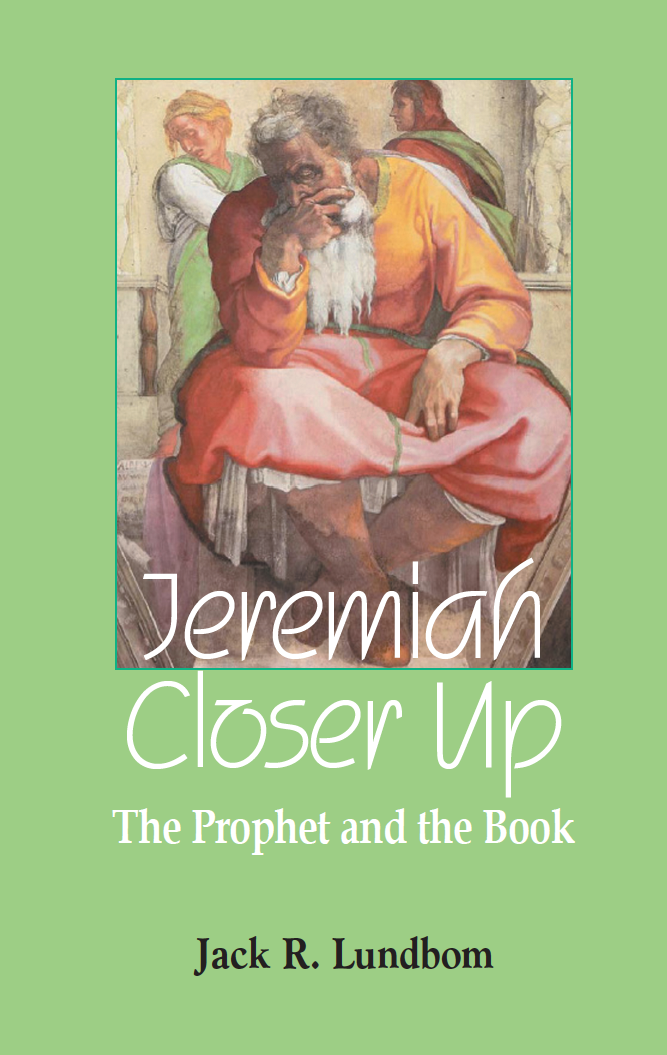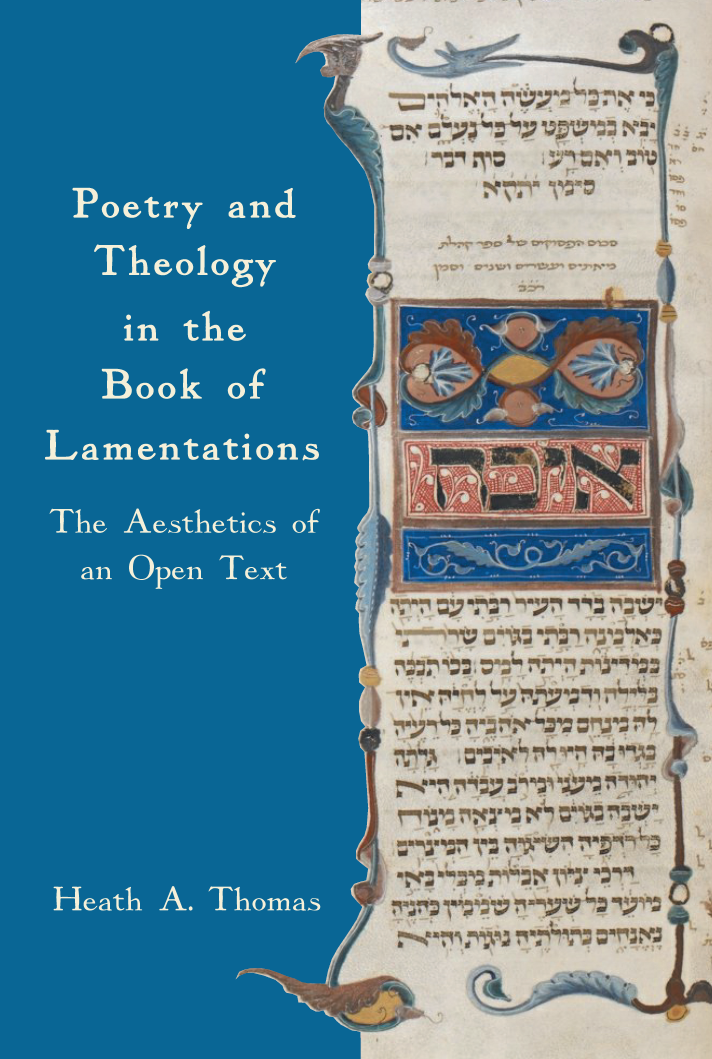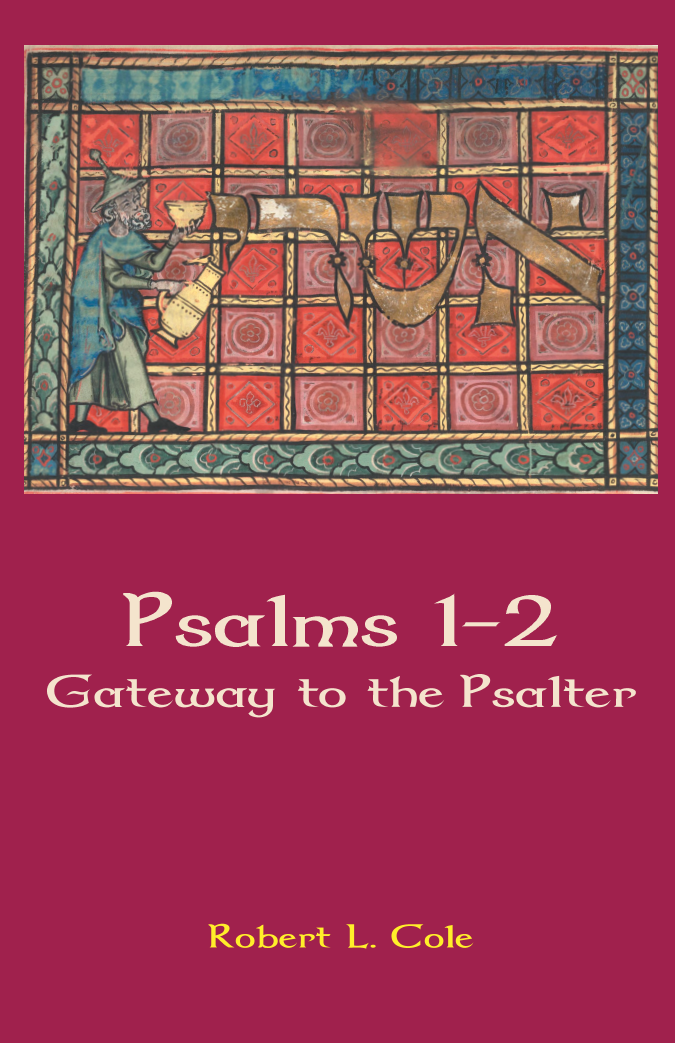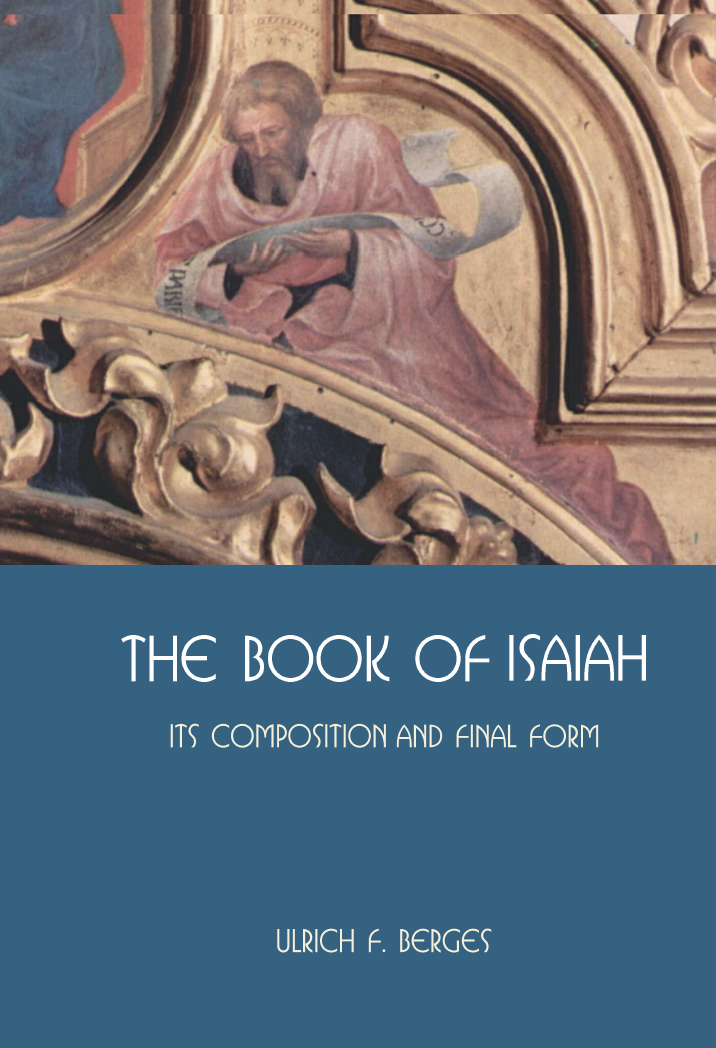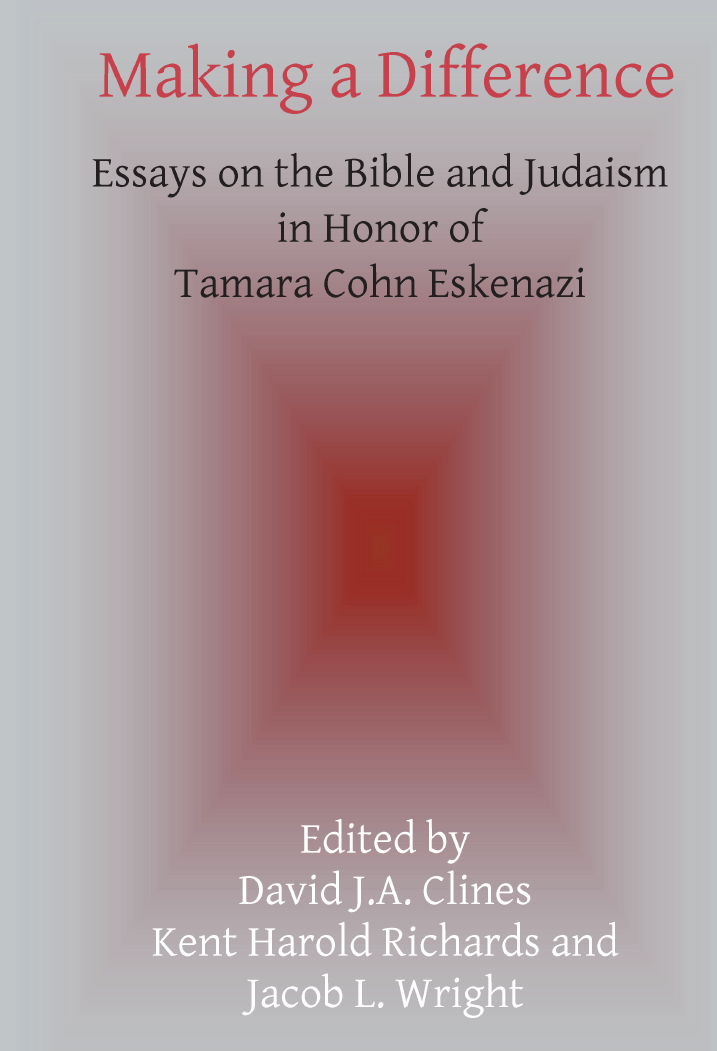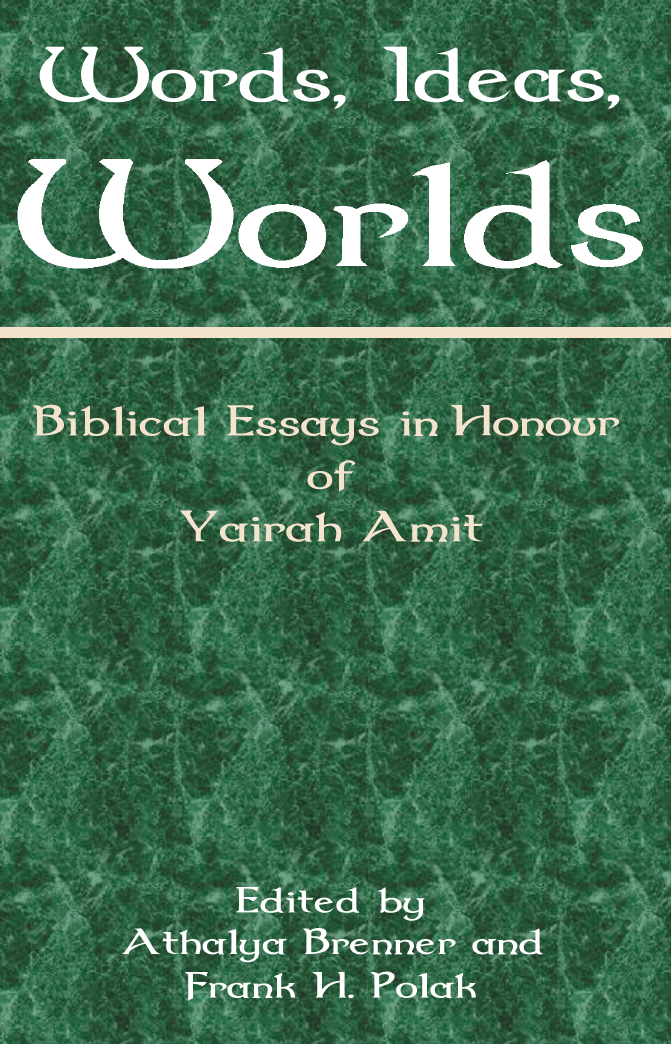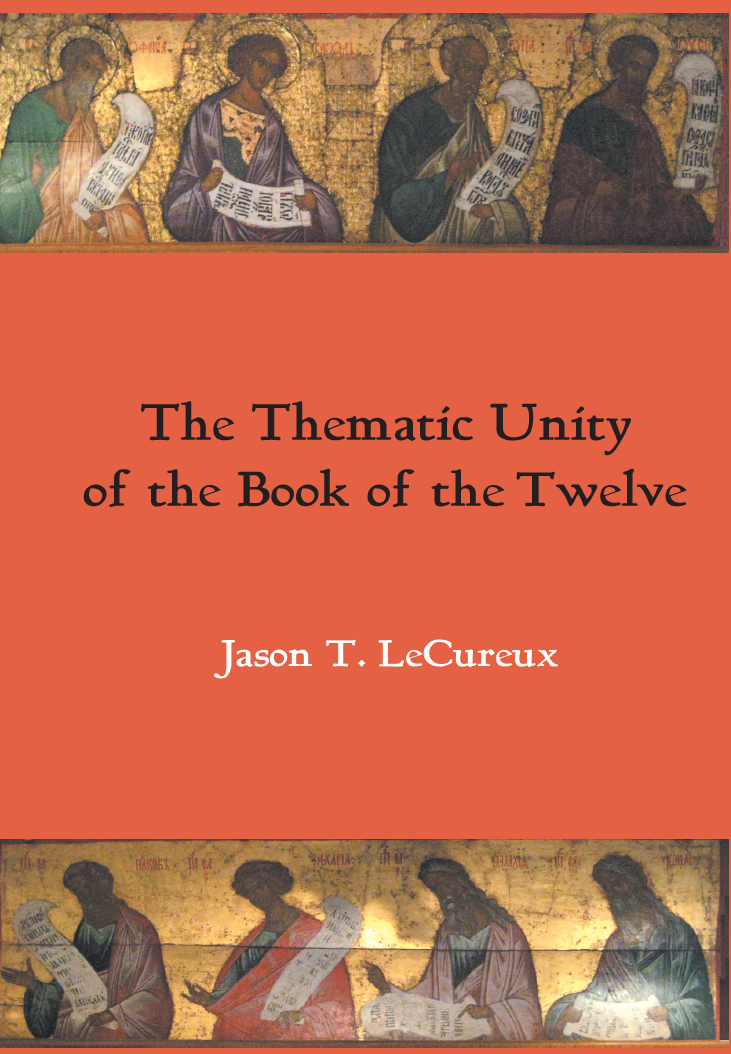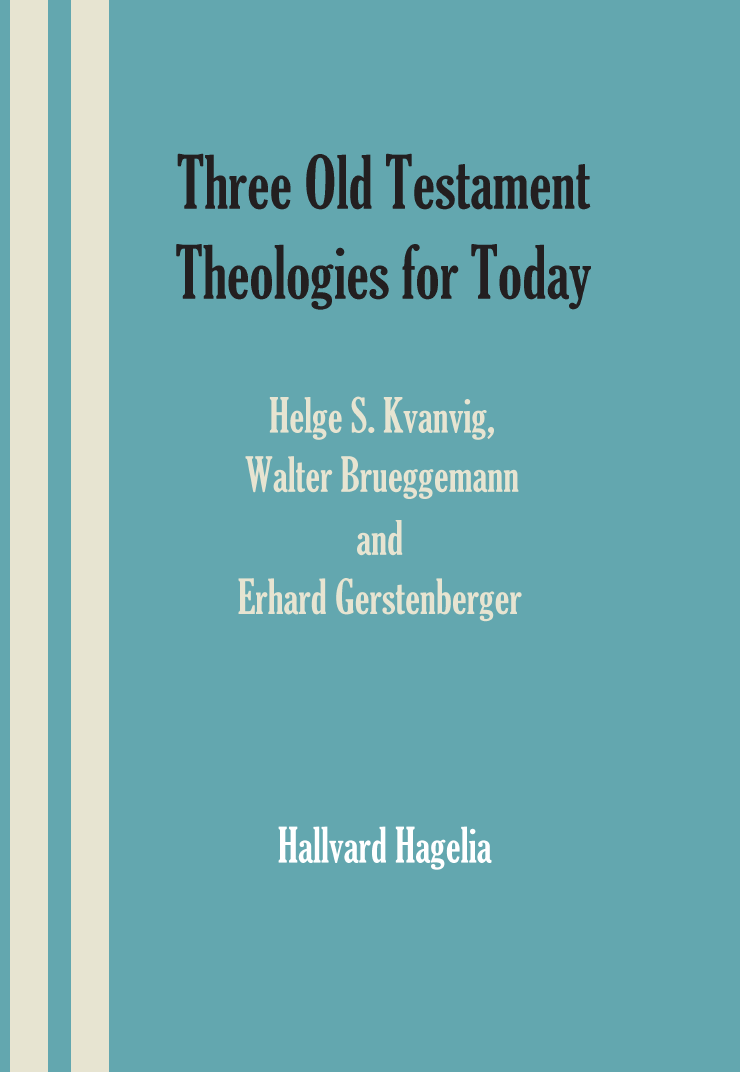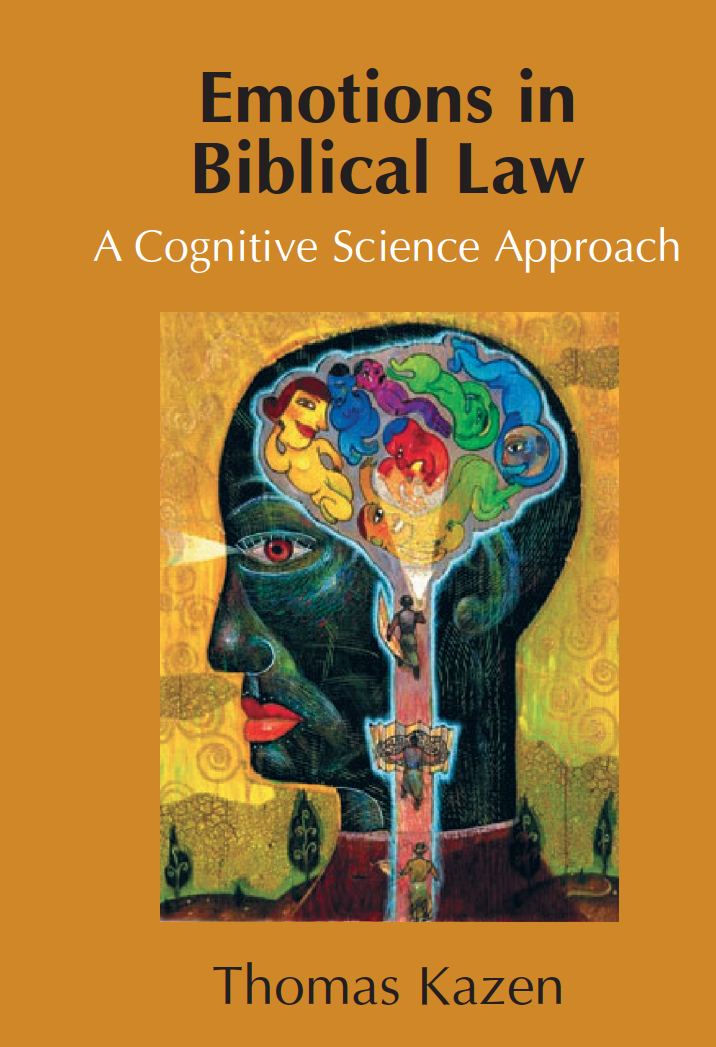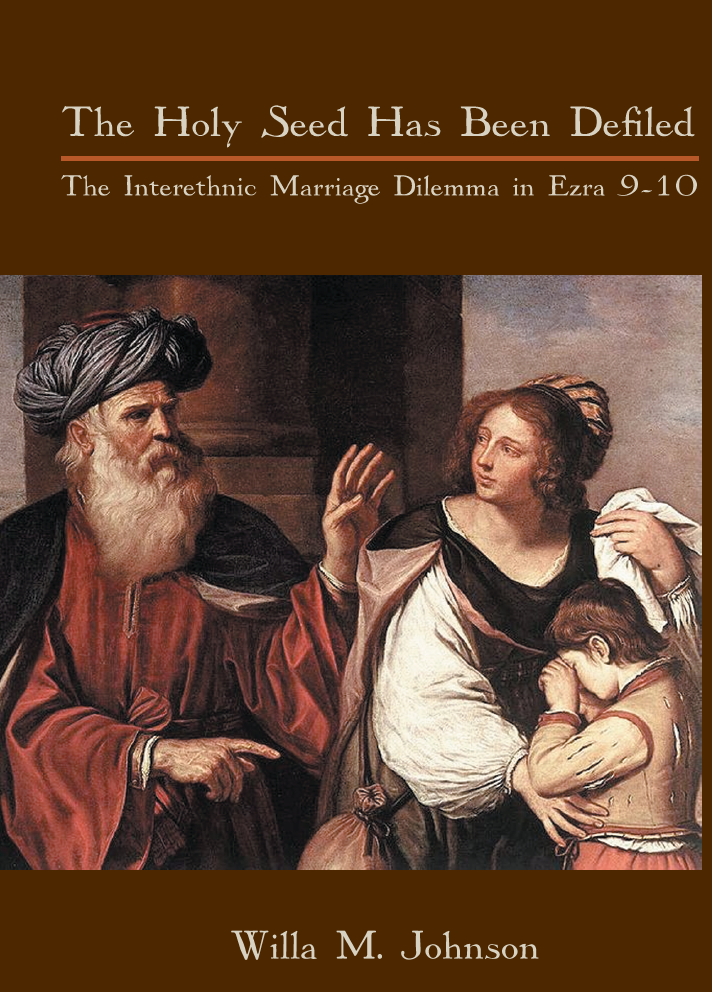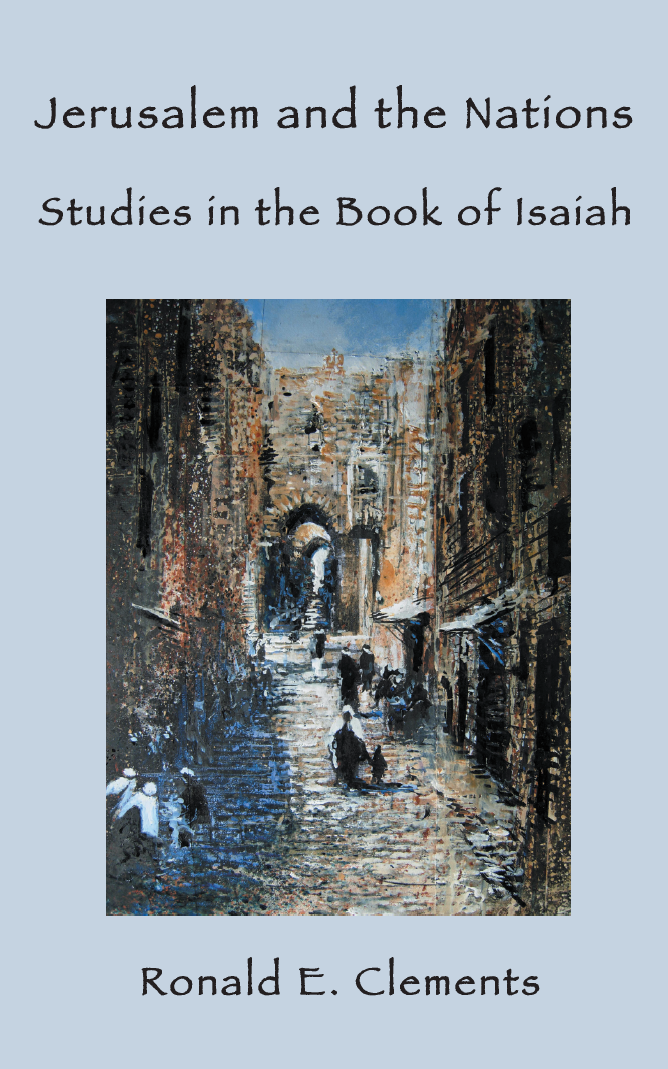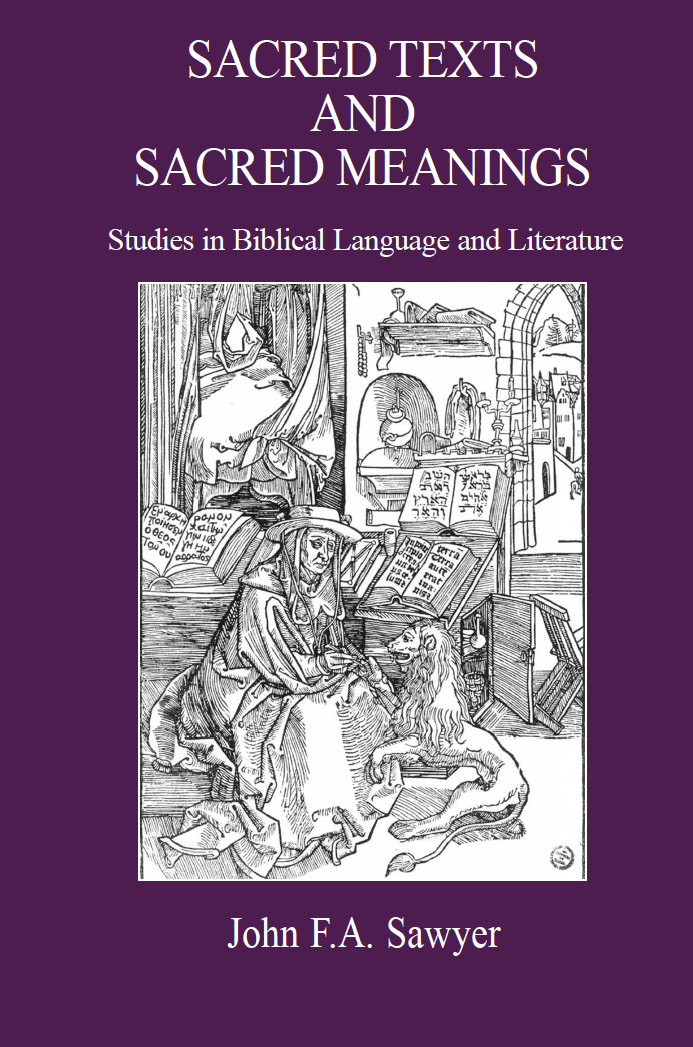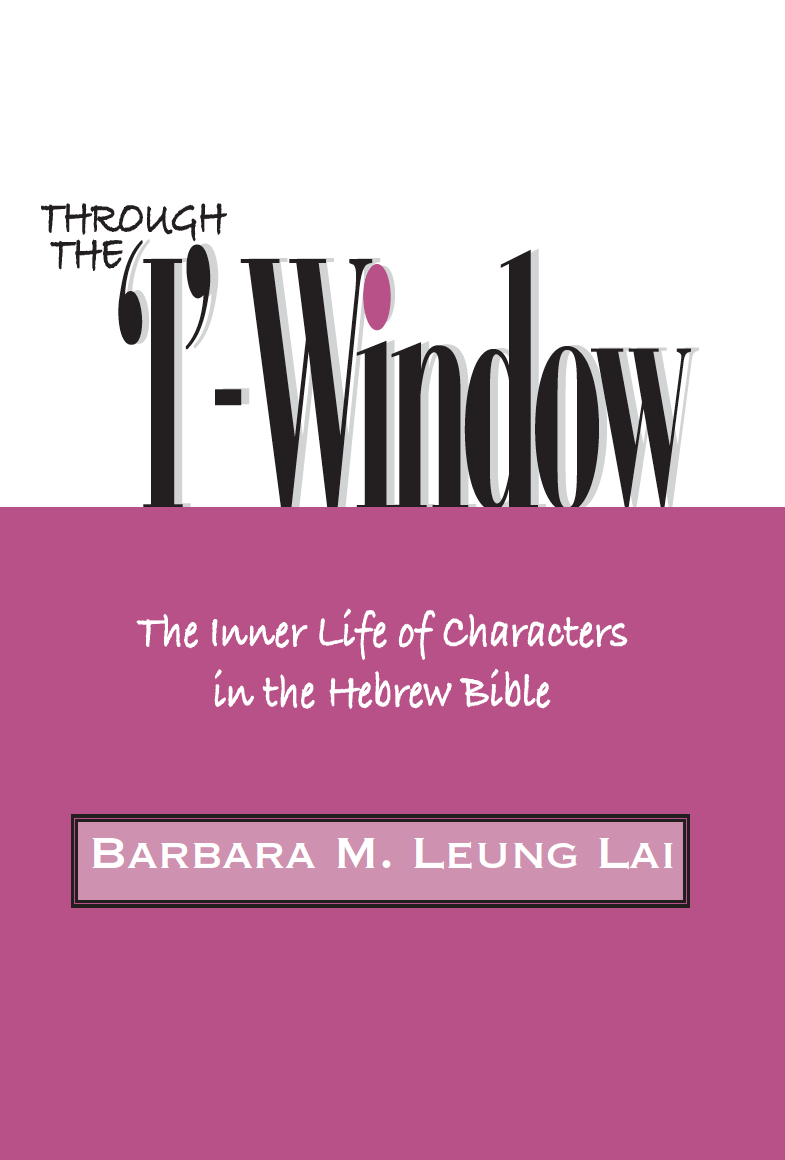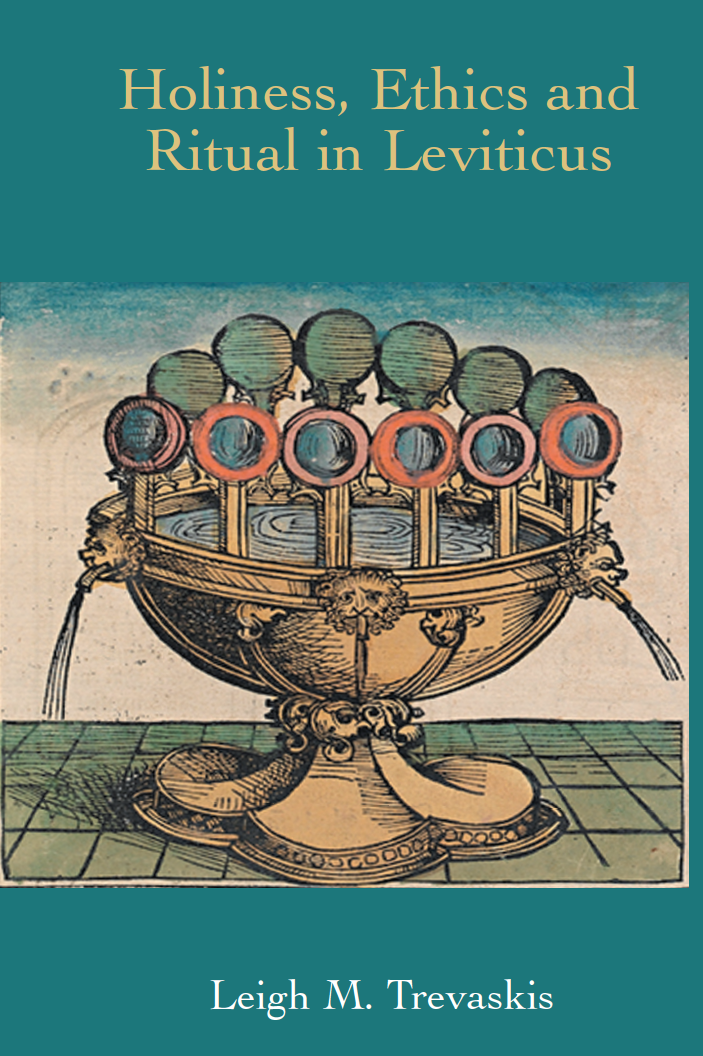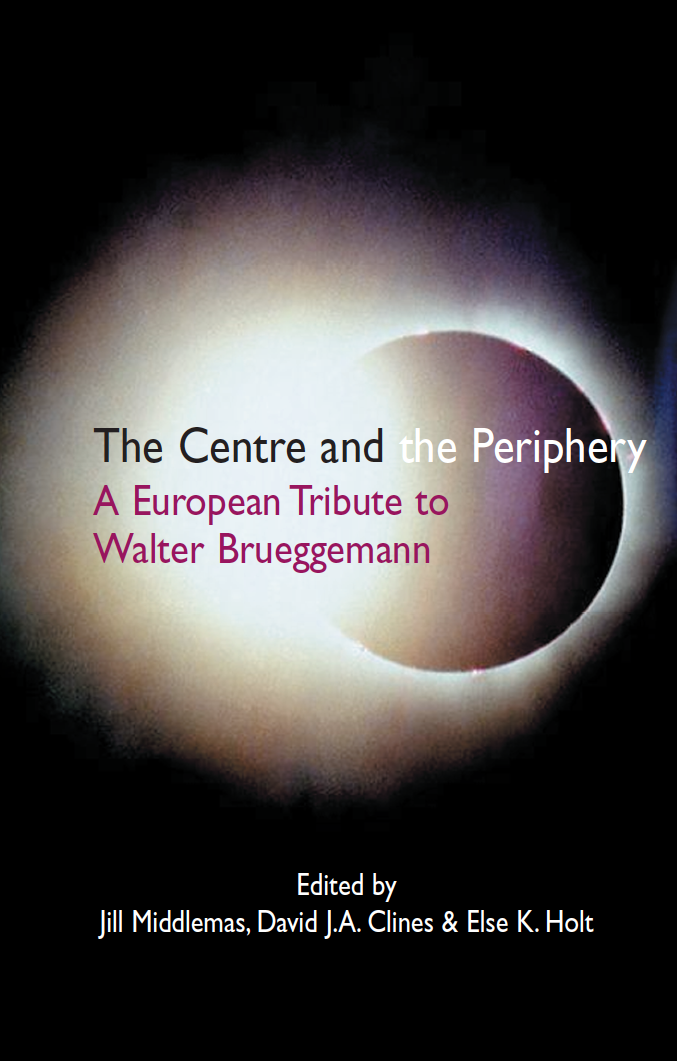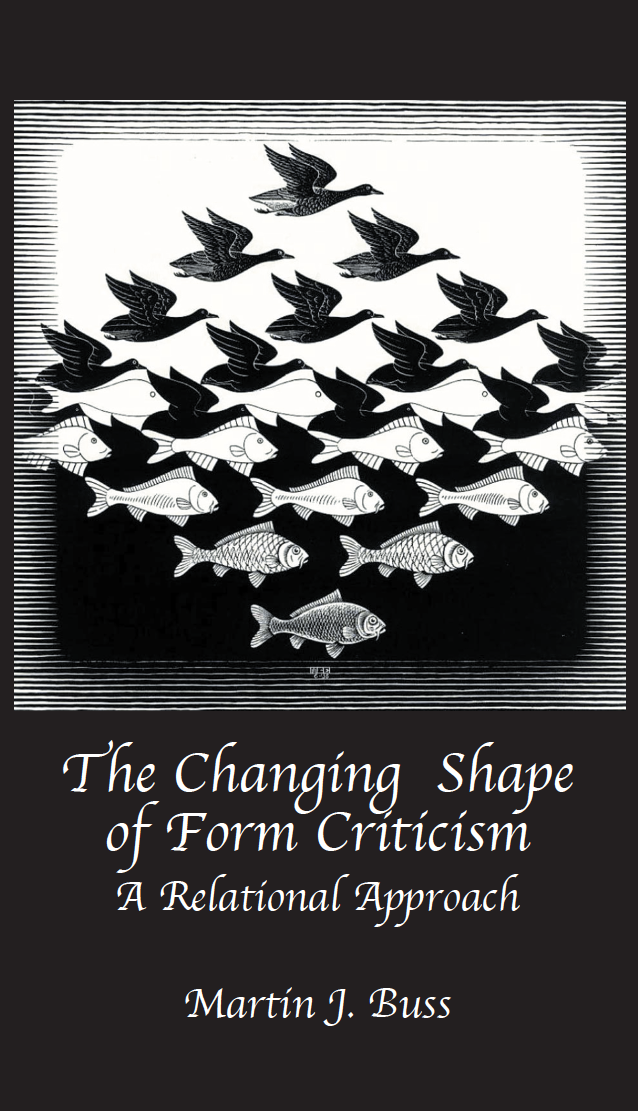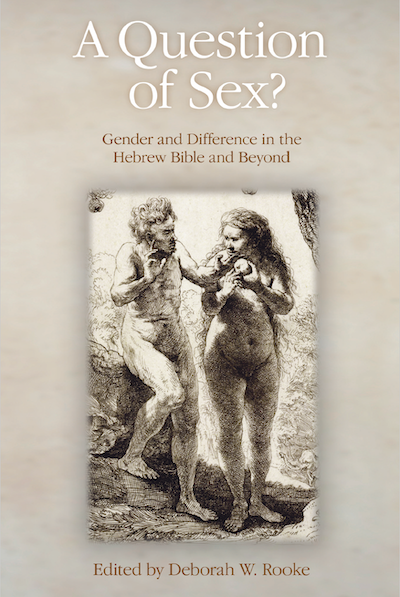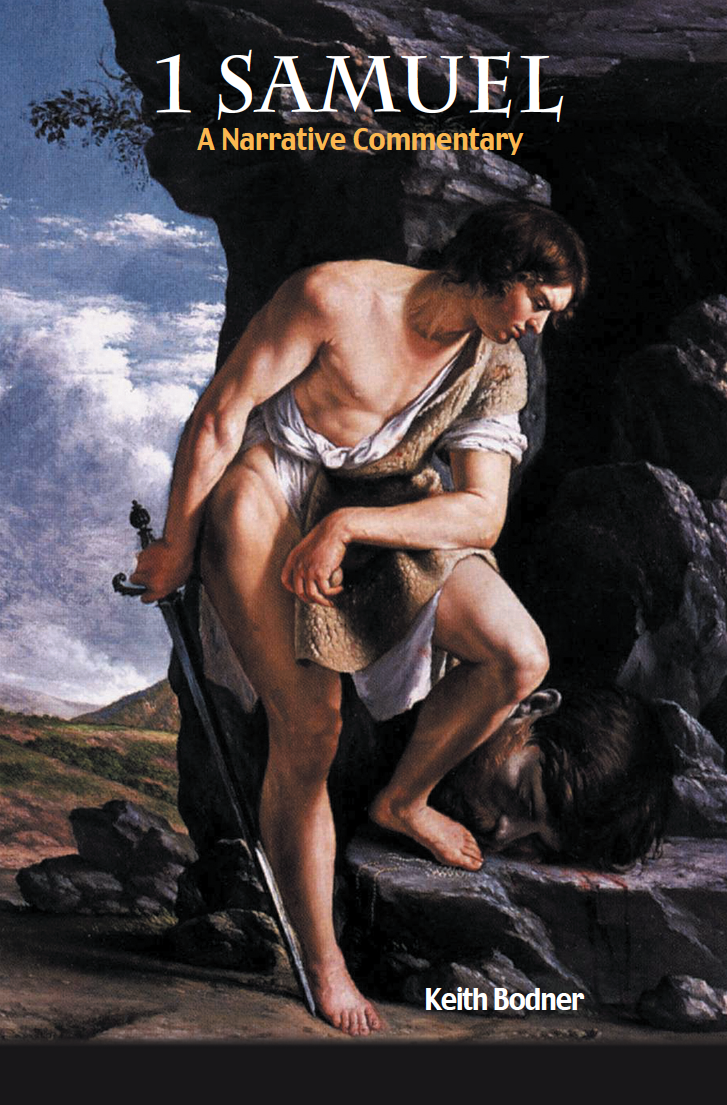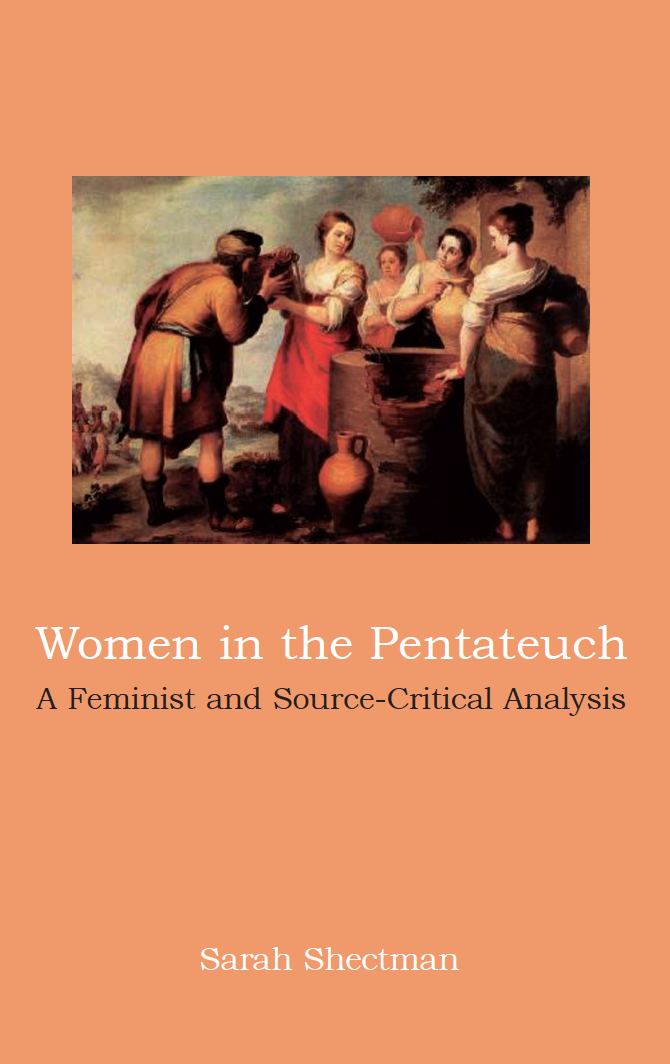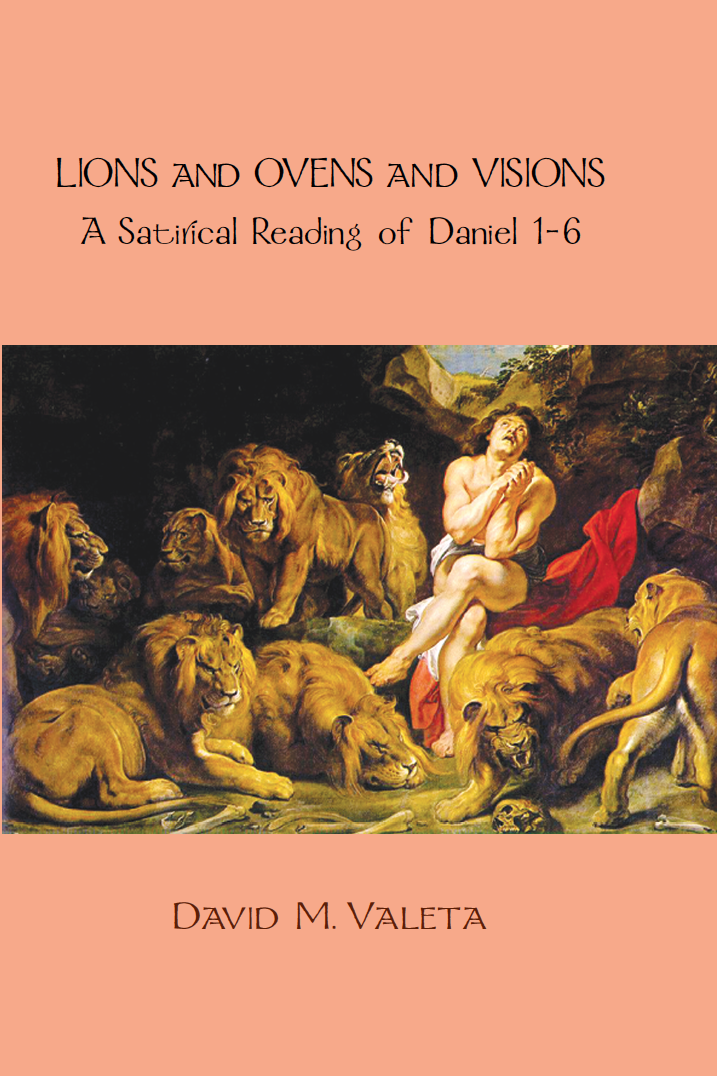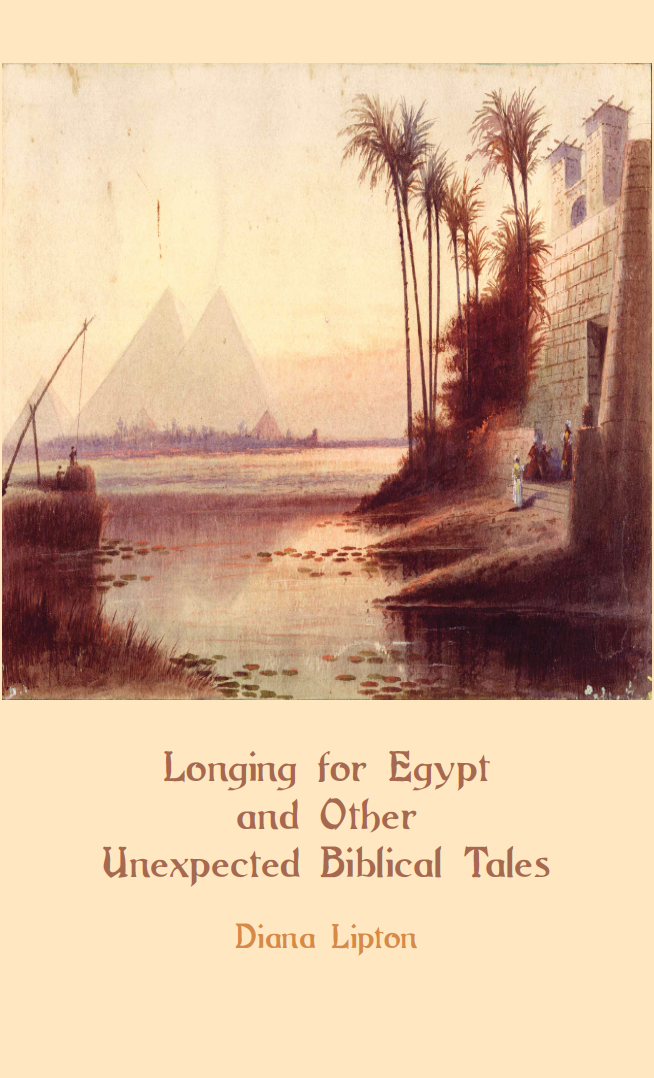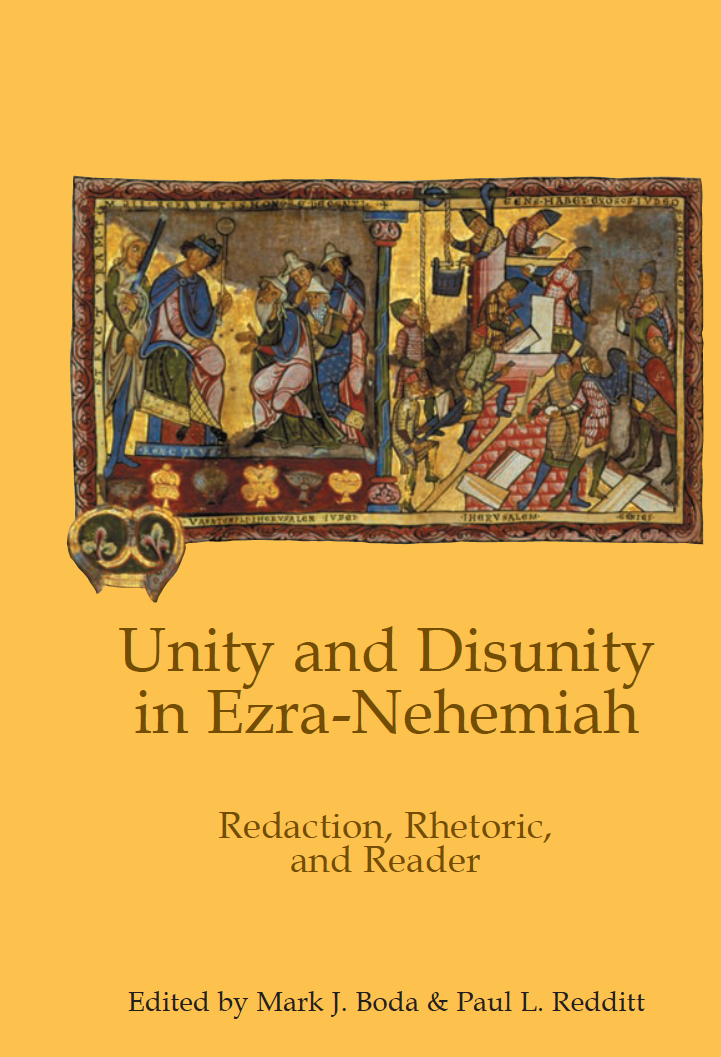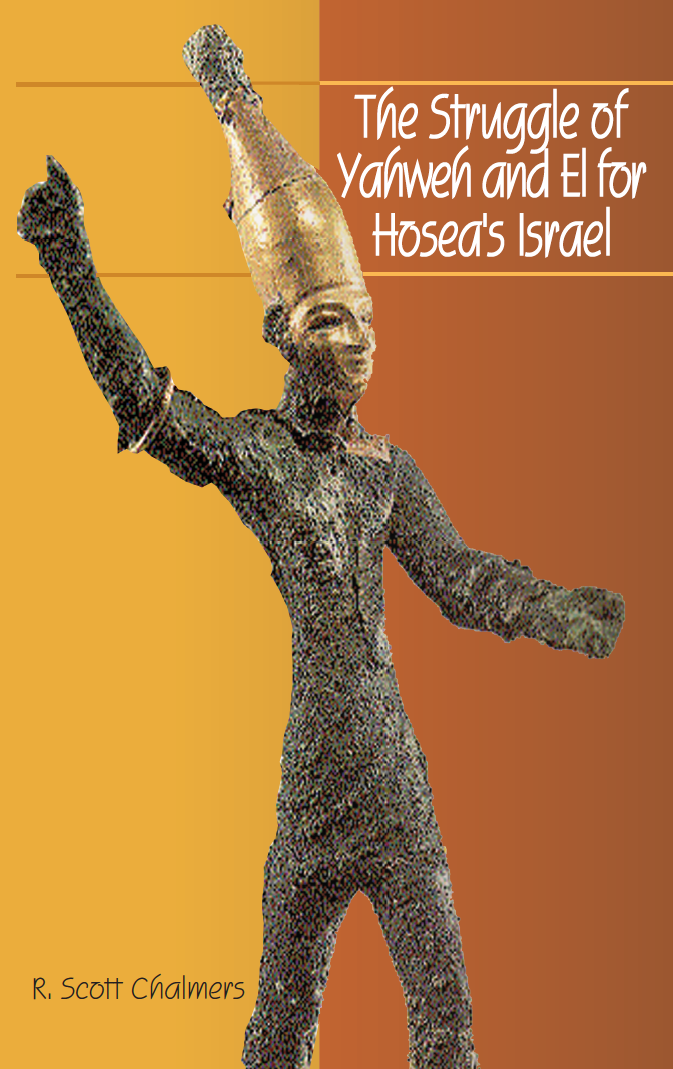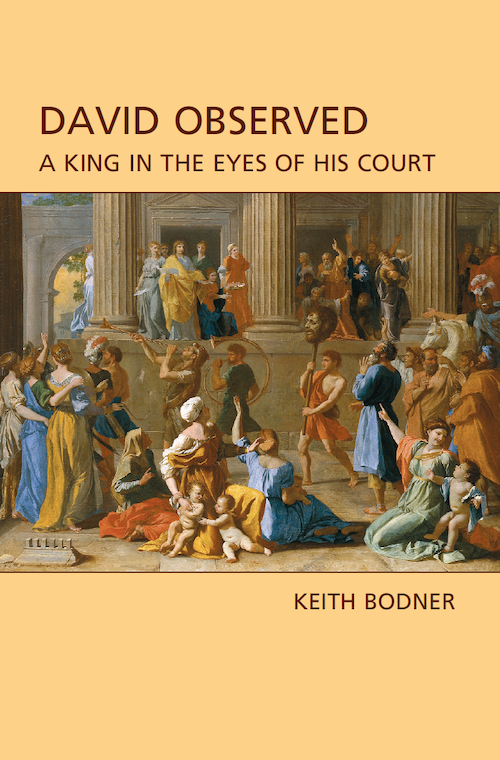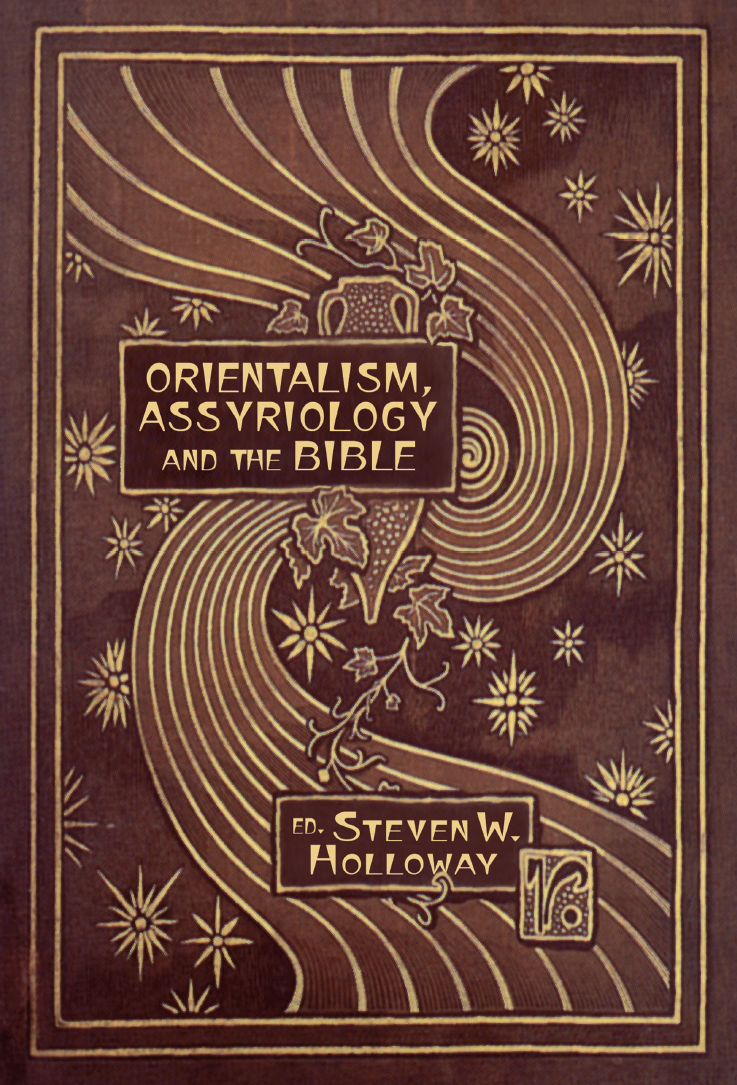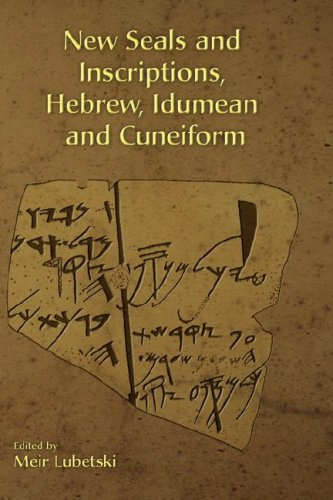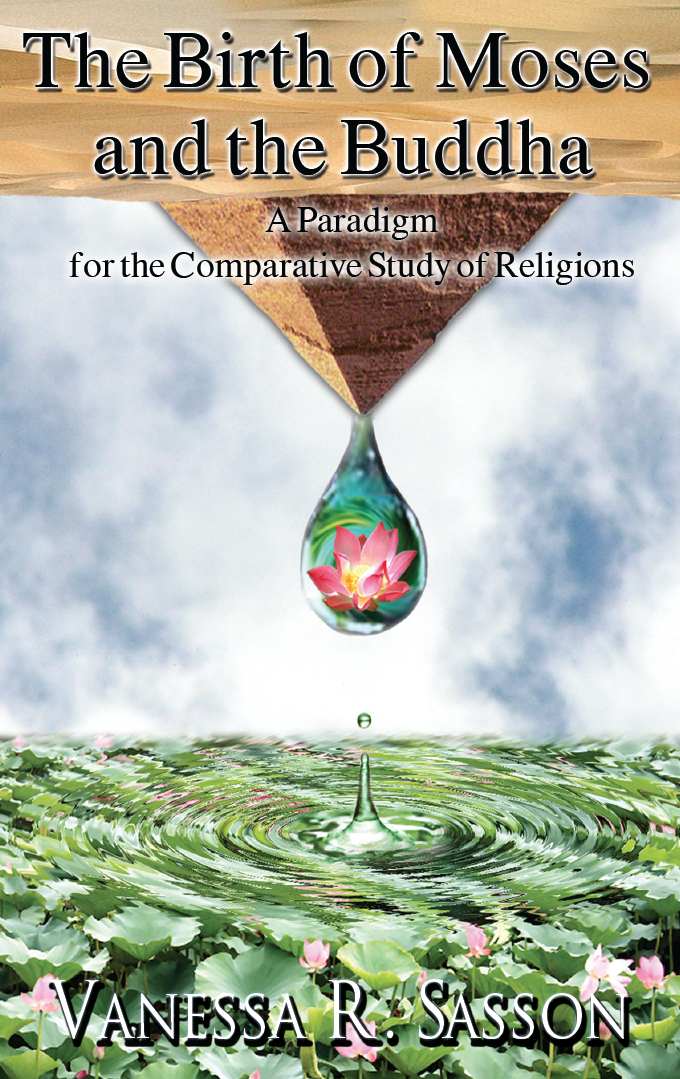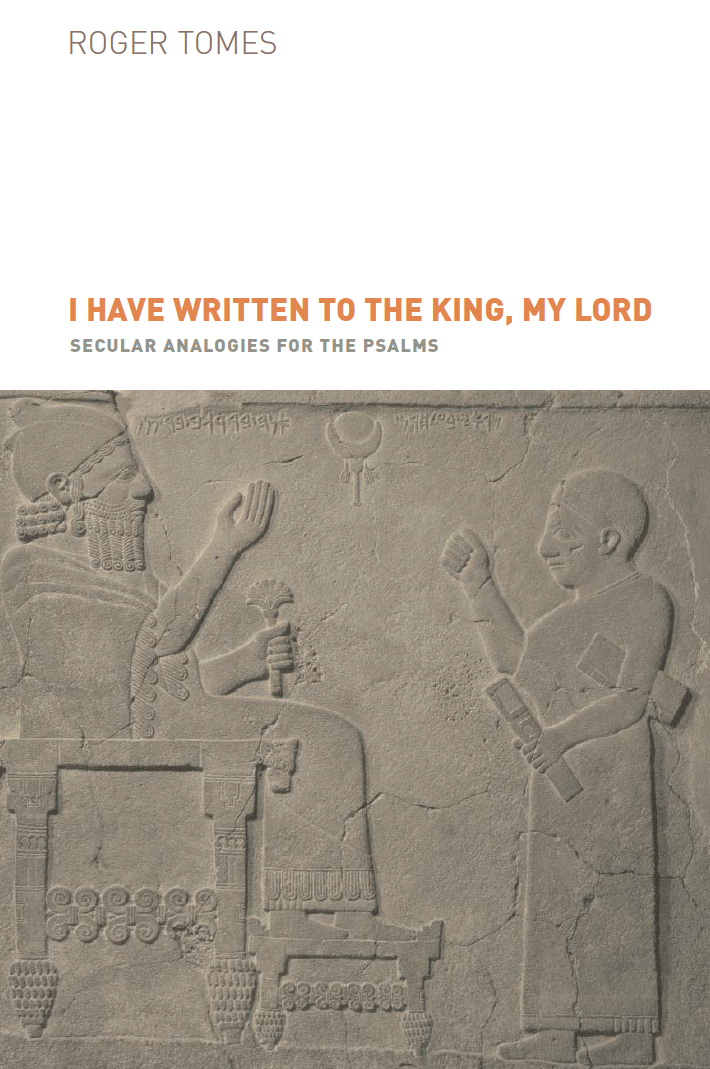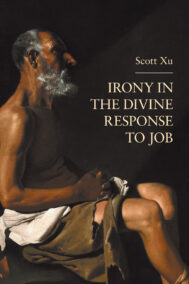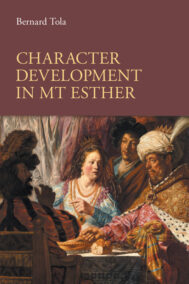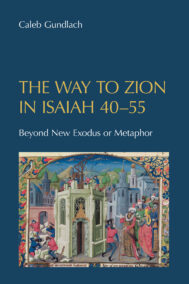Jeremiah Closer Up: The Prophet and the Book
Published: May 2013
Price range: £15.00 through £40.00
Closer up than what? Many recent studies of Jeremiah leave us with but a faint glimmer of this great Hebrew prophet; in some he disappears completely into later tradition. Some scholars think that the book of Jeremiah lacks historical veracity: when it was composed, supposedly in the late exilic or postexilic periods, historical memories had been dimmed and ideology had come to dominate the Jeremiah legacy. The present essays combine to argue that both the prophet and his book can be viewed “closer up” than the imagination of many modern-day interpreters will allow.
The first three essays discuss the text, rhetoric and composition of the book of Jeremiah. The longer Hebrew text is given preference over the Greek Septuagint text, which means that we can dispense entirely with the idea that scribes were busily writing, editing and expanding the Jeremiah book in Babylon. Rhetorical and other delimiting criteria show that Jeremiah’s so-called ‘Temple Sermon’ (7.1-15) is rather a cluster of three oracles manifesting a rudimentary form of logic. Finally, a correlation of Gedaliah’s murder with the exile of 582 argues for a nearly four-year existence of the remnant community at Mizpah, more than enough time for Jeremiah and Baruch to write up the events following the destruction of Jerusalem.
The remaining essays discuss Jeremiah’s views of history, the created order, the covenant, and nations of the world, as well as the prophet’s so-called ‘confessions’. These extraordinary insights into the interior disposition of a Hebrew prophet reveal how Jeremiah felt about the word he had to preach, and what impact it had on him personally. The confessions are analysed both as formal psalm-like laments, and as gems of rhetorical composition.
Jeremiah Closer Up: The Prophet and the Book
Price range: £15.00 through £40.00
Closer up than what? Many recent studies of Jeremiah leave us with but a faint glimmer of this great Hebrew prophet; in some he disappears completely into later tradition. Some scholars think that the book of Jeremiah lacks historical veracity: when it was composed, supposedly in the late exilic or postexilic periods, historical memories had been dimmed and ideology had come to dominate the Jeremiah legacy. The present essays combine to argue that both the prophet and his book can be viewed “closer up” than the imagination of many modern-day interpreters will allow.
The first three essays discuss the text, rhetoric and composition of the book of Jeremiah. The longer Hebrew text is given preference over the Greek Septuagint text, which means that we can dispense entirely with the idea that scribes were busily writing, editing and expanding the Jeremiah book in Babylon. Rhetorical and other delimiting criteria show that Jeremiah’s so-called ‘Temple Sermon’ (7.1-15) is rather a cluster of three oracles manifesting a rudimentary form of logic. Finally, a correlation of Gedaliah’s murder with the exile of 582 argues for a nearly four-year existence of the remnant community at Mizpah, more than enough time for Jeremiah and Baruch to write up the events following the destruction of Jerusalem.
The remaining essays discuss Jeremiah’s views of history, the created order, the covenant, and nations of the world, as well as the prophet’s so-called ‘confessions’. These extraordinary insights into the interior disposition of a Hebrew prophet reveal how Jeremiah felt about the word he had to preach, and what impact it had on him personally. The confessions are analysed both as formal psalm-like laments, and as gems of rhetorical composition.
Poetry and Theology in the Book of Lamentations: The Aesthetics of an Open Text
Published: Mar 2013
£60.00
The book of Lamentations is a challenge to its readers. Its ambiguous theology, strident protestations against its deity, and haunting imagery confound interpreters. This monograph engages the enigma of Lamentations by assessing its theology. It does so, however, neither by tracing a single theological perspective through the book nor by reconstructing the history of the composition of the book. Rather, Heath Thomas assesses the poetry of Lamentations by offering a close analysis of each poem in the book. He reconsiders the acrostic as the foundational structure for the poetry, reads the book as an intentionally composed whole, and assesses the pervasive use of repetition, metaphor, and allusion.
For the first time in the field, the analysis here is grounded on the insights of the Italian semiotician Umberto Eco. Drawing upon Eco's distinction between 'open' and 'closed' textualities, Thomas argues that Lamentations represents a distinctively 'open' text, one that presents its reader with a myriad of surprising avenues to interpret the poetry. This distinctive approach avoids a polarization in the portrait of God in Lamentations, arguing that its poetry neither justifies God outright nor does it exonerate God's people in the exilic age. Rather, it enables these theological visions to interrelate with each another, inviting the reader to make sense of the interaction.
The ambiguous theological vision of Lamentations, then, is not a problem that the reader is intended to overcome but an integral feature in the construction of meaning. This original monograph offers a new perspective on how the poetry informs our appreciation of theological thought in the exilic age.
Poetry and Theology in the Book of Lamentations: The Aesthetics of an Open Text
£60.00
The book of Lamentations is a challenge to its readers. Its ambiguous theology, strident protestations against its deity, and haunting imagery confound interpreters. This monograph engages the enigma of Lamentations by assessing its theology. It does so, however, neither by tracing a single theological perspective through the book nor by reconstructing the history of the composition of the book. Rather, Heath Thomas assesses the poetry of Lamentations by offering a close analysis of each poem in the book. He reconsiders the acrostic as the foundational structure for the poetry, reads the book as an intentionally composed whole, and assesses the pervasive use of repetition, metaphor, and allusion.
For the first time in the field, the analysis here is grounded on the insights of the Italian semiotician Umberto Eco. Drawing upon Eco's distinction between 'open' and 'closed' textualities, Thomas argues that Lamentations represents a distinctively 'open' text, one that presents its reader with a myriad of surprising avenues to interpret the poetry. This distinctive approach avoids a polarization in the portrait of God in Lamentations, arguing that its poetry neither justifies God outright nor does it exonerate God's people in the exilic age. Rather, it enables these theological visions to interrelate with each another, inviting the reader to make sense of the interaction.
The ambiguous theological vision of Lamentations, then, is not a problem that the reader is intended to overcome but an integral feature in the construction of meaning. This original monograph offers a new perspective on how the poetry informs our appreciation of theological thought in the exilic age.
Psalms 1-2: Gateway to the Psalter
Published: Jan 2013
£50.00
As against the form-critical approach, which sees the first two psalms as more or less random examples of the torah and royal types, this study argues for a deliberate and cogent arrangement of Psalms 1 and 2.
A detailed linguistic analysis of and comparison between these two apparently disparate psalms at the outset of the book reveals the purpose for their juxtaposition. The principal characters in the first psalm are further described in the second. The man of Psalm 1 is portrayed in eschatological terms as an impeccable royal, sacerdotal, and all-conquering military figure. He appears again in Psalm 2 but as a heavenly-enthroned victorious priest and king. His opponents, the wicked in Psalm 1, are identified in Psalm 2 as recalcitrant rulers and peoples who reject his rule and seek to do away with him.
However, the calculated divine response to their plotting assures their ultimate defeat unless they submit to him. This cohesive and coherent introductory pair of psalms sets a pattern at the beginning for reading all those that follow. Indeed, a thorough understanding of the first two psalms and their integrated message is a prerequisite for understanding the purpose of the entire book.
Psalms 1-2: Gateway to the Psalter
£50.00
As against the form-critical approach, which sees the first two psalms as more or less random examples of the torah and royal types, this study argues for a deliberate and cogent arrangement of Psalms 1 and 2.
A detailed linguistic analysis of and comparison between these two apparently disparate psalms at the outset of the book reveals the purpose for their juxtaposition. The principal characters in the first psalm are further described in the second. The man of Psalm 1 is portrayed in eschatological terms as an impeccable royal, sacerdotal, and all-conquering military figure. He appears again in Psalm 2 but as a heavenly-enthroned victorious priest and king. His opponents, the wicked in Psalm 1, are identified in Psalm 2 as recalcitrant rulers and peoples who reject his rule and seek to do away with him.
However, the calculated divine response to their plotting assures their ultimate defeat unless they submit to him. This cohesive and coherent introductory pair of psalms sets a pattern at the beginning for reading all those that follow. Indeed, a thorough understanding of the first two psalms and their integrated message is a prerequisite for understanding the purpose of the entire book.
The Book of Isaiah: Its Composition and Final Form
Published: Oct 2012
£80.00
Study of the book of Isaiah has in recent times been strongly marked by a tension between synchronic and diachronic approaches. The first is favoured mainly by English-speaking, the second by German-speaking scholars. Berges's book attempts to mediate between the two poles, arguing that the final form analysis and the tracing of the development of that form are deeply interdependent.
This new research paradigm is applied here to the entire text of the book of Isaiah. Berges works consistently from the synchronic to the diachronic and back again to the evolved synchronous final form. Features that have been repeatedly observed —the cross-connections, key word associations, resumption of themes, and especially the bracketing of the book by chaps. 1 and 66 —are traces of a deliberate interweaving of various small compositions as well as of larger literary redactions.
The paradigm most suited to the book of Isaiah in all its complexity is not that of one comprehensive overall structure or final redaction, but that of smaller compositions that build on one another, come into conversation with one another, and, each in its own way, bring into play specific contemporary problems. We should not force a common thematic denominator on the book, but it becomes clear that Jerusalem and Zion belong to the basic tenor of the book of Isaiah as it was developed and refashioned through the centuries.
The Book of Isaiah: Its Composition and Final Form is translated by Millard C. Lind from its German original, Das Buch Jesaja: Komposition und Endgestalt (Freiburg: Herder, 1998).
The Book of Isaiah: Its Composition and Final Form
£80.00
Study of the book of Isaiah has in recent times been strongly marked by a tension between synchronic and diachronic approaches. The first is favoured mainly by English-speaking, the second by German-speaking scholars. Berges's book attempts to mediate between the two poles, arguing that the final form analysis and the tracing of the development of that form are deeply interdependent.
This new research paradigm is applied here to the entire text of the book of Isaiah. Berges works consistently from the synchronic to the diachronic and back again to the evolved synchronous final form. Features that have been repeatedly observed —the cross-connections, key word associations, resumption of themes, and especially the bracketing of the book by chaps. 1 and 66 —are traces of a deliberate interweaving of various small compositions as well as of larger literary redactions.
The paradigm most suited to the book of Isaiah in all its complexity is not that of one comprehensive overall structure or final redaction, but that of smaller compositions that build on one another, come into conversation with one another, and, each in its own way, bring into play specific contemporary problems. We should not force a common thematic denominator on the book, but it becomes clear that Jerusalem and Zion belong to the basic tenor of the book of Isaiah as it was developed and refashioned through the centuries.
The Book of Isaiah: Its Composition and Final Form is translated by Millard C. Lind from its German original, Das Buch Jesaja: Komposition und Endgestalt (Freiburg: Herder, 1998).
Making a Difference: Essays on the Bible and Judaism in Honor of Tamara Cohn Eskenazi
Published: Oct 2012
£75.00
Tamara Cohn Eskenazi has a special place in contemporary biblical scholarship. Among the first to bring a focus of scholarly attention to the period of ancient Israel's creativity after the Exile, she has also been a leader in foregrounding the Jewish tradition within the interpretative discourse of biblical scholars. And as a woman scholar, she has advanced the study of issues in the Hebrew Bible that impinge on the concerns of women ancient and modern.
Tamara Eskenazi was awarded the 2008 National Jewish Book Award for her volume The Torah: A Women's Commentary and the 2011 National Jewish Book Award in Women's Studies for her commentary on Ruth in the Jewish Publication Society Bible Commentary series.
The 26 articles offered to Tamara Eskenazi by her friends in this volume represent the range of her interests in all things biblical and Jewish. From the Book of Genesis to the New Testament to modern Hebrew fiction, from technical studies on the prophets or Qumran to penetrating insights on her beloved philosopher Levinas, this volume beautifully represents the range and depth of Jewish culture.
Making a Difference: Essays on the Bible and Judaism in Honor of Tamara Cohn Eskenazi
£75.00
Tamara Cohn Eskenazi has a special place in contemporary biblical scholarship. Among the first to bring a focus of scholarly attention to the period of ancient Israel's creativity after the Exile, she has also been a leader in foregrounding the Jewish tradition within the interpretative discourse of biblical scholars. And as a woman scholar, she has advanced the study of issues in the Hebrew Bible that impinge on the concerns of women ancient and modern.
Tamara Eskenazi was awarded the 2008 National Jewish Book Award for her volume The Torah: A Women's Commentary and the 2011 National Jewish Book Award in Women's Studies for her commentary on Ruth in the Jewish Publication Society Bible Commentary series.
The 26 articles offered to Tamara Eskenazi by her friends in this volume represent the range of her interests in all things biblical and Jewish. From the Book of Genesis to the New Testament to modern Hebrew fiction, from technical studies on the prophets or Qumran to penetrating insights on her beloved philosopher Levinas, this volume beautifully represents the range and depth of Jewish culture.
Words, Ideas, Worlds: Biblical Essays in Honour of Yairah Amit
Published: Aug 2012
£75.00
This volume brings together fourteen essays by Israeli, European and American scholars honouring the distinct contribution of Yairah Amit to the literary study of the Hebrew Bible and to her public role, fostering especially the place of the Hebrew Bible in Israeli education. In biblical studies she has made significant contributions to the study of redactional and editorial activity, which she has always viewed from a rhetorical and literary point of view. These aspects were uniquely developed in her work on the books of Judges and Chronicles, in which literary considerations always lead to the recognition of the ideology behind the redactor’s work. Another key theme of hers has been overt and hidden polemics expressed or suggested by the narrative text.
The studies assembled in the present volume deal with the many aspects of Amit’s work, from the biblical and post-biblical down to the mediaeval and the modern period. Central fields are the art of the redactor and inner-biblical polemics (Diana Edelman, Cynthia Edenburg, Nadav Na’aman, Meira Polliack, Dalit Rom-Shiloni), literary scrutiny (Ed Greenstein, Lillian Klein Abensohn, Frank Polak), ideology in social and religious contexts (Ehud Ben Zvi, Israel Knohl), and feminist and cultural studies in a wider sense (Athalya Brenner, Cheryl Exum, Yael Feldman, Shulamit Valler).
This is the fifth volume of the Amsterdam Studies in the Bible and Religion (ed. Athalya Brenner), a sub-series of the Bible in the Modern World and Hebrew Bible Monographs.
Words, Ideas, Worlds: Biblical Essays in Honour of Yairah Amit
£75.00
This volume brings together fourteen essays by Israeli, European and American scholars honouring the distinct contribution of Yairah Amit to the literary study of the Hebrew Bible and to her public role, fostering especially the place of the Hebrew Bible in Israeli education. In biblical studies she has made significant contributions to the study of redactional and editorial activity, which she has always viewed from a rhetorical and literary point of view. These aspects were uniquely developed in her work on the books of Judges and Chronicles, in which literary considerations always lead to the recognition of the ideology behind the redactor’s work. Another key theme of hers has been overt and hidden polemics expressed or suggested by the narrative text.
The studies assembled in the present volume deal with the many aspects of Amit’s work, from the biblical and post-biblical down to the mediaeval and the modern period. Central fields are the art of the redactor and inner-biblical polemics (Diana Edelman, Cynthia Edenburg, Nadav Na’aman, Meira Polliack, Dalit Rom-Shiloni), literary scrutiny (Ed Greenstein, Lillian Klein Abensohn, Frank Polak), ideology in social and religious contexts (Ehud Ben Zvi, Israel Knohl), and feminist and cultural studies in a wider sense (Athalya Brenner, Cheryl Exum, Yael Feldman, Shulamit Valler).
This is the fifth volume of the Amsterdam Studies in the Bible and Religion (ed. Athalya Brenner), a sub-series of the Bible in the Modern World and Hebrew Bible Monographs.
The Thematic Unity of the Book of the Twelve
Published: Jun 2012
£75.00
“Return to me”, declares Yhwh of Hosts, “and I will return to you”, declares Yhwh of Hosts. The sentence stands at the head of the prophecy of Zechariah (1.3). But what does it mean to 'return to Yhwh?' And what does it mean that Yhwh 'will return to you'? LeCureux argues that it is this call to repentance, and Yhwh's responses to it, that form the unifying and organizing theme of return for the Book of the Twelve. While studies on the development and composition of the Twelve have proved fruitful in recent years, this book attempts to expand on those works by looking closely at the final form of the Twelve, particularly of its opening and closing books (Hosea —Joel, Zechariah —Malachi), and the role that canonical position and theme play within the Book. This project begins by defining the function of theme in biblical books, and then compares the role theme plays in Isaiah with its role in the Twelve, before engaging in the primary task of exegesis. LeCureux examines the use of 'return' in the Twelve, showing that it is the call to return that controls the events of the Day of Yhwh. Going further, the exegesis uncovers the links between the return imperatives of Hosea 14, Joel 2, Zechariah's own calls to return and Malachi's concluding question, 'How are we to return?'(3.7). What is ultimately revealed is the multifaceted nature of God's relationship with his people, one that involves the people's struggle to turn from covenantal disobedience toward Yhwh in repentance, as well as Yhwh's own turning from judgment toward his people in blessing.
The Thematic Unity of the Book of the Twelve
£75.00
“Return to me”, declares Yhwh of Hosts, “and I will return to you”, declares Yhwh of Hosts. The sentence stands at the head of the prophecy of Zechariah (1.3). But what does it mean to 'return to Yhwh?' And what does it mean that Yhwh 'will return to you'? LeCureux argues that it is this call to repentance, and Yhwh's responses to it, that form the unifying and organizing theme of return for the Book of the Twelve. While studies on the development and composition of the Twelve have proved fruitful in recent years, this book attempts to expand on those works by looking closely at the final form of the Twelve, particularly of its opening and closing books (Hosea —Joel, Zechariah —Malachi), and the role that canonical position and theme play within the Book. This project begins by defining the function of theme in biblical books, and then compares the role theme plays in Isaiah with its role in the Twelve, before engaging in the primary task of exegesis. LeCureux examines the use of 'return' in the Twelve, showing that it is the call to return that controls the events of the Day of Yhwh. Going further, the exegesis uncovers the links between the return imperatives of Hosea 14, Joel 2, Zechariah's own calls to return and Malachi's concluding question, 'How are we to return?'(3.7). What is ultimately revealed is the multifaceted nature of God's relationship with his people, one that involves the people's struggle to turn from covenantal disobedience toward Yhwh in repentance, as well as Yhwh's own turning from judgment toward his people in blessing.
Three Old Testament Theologies for Today: Helge S. Kvanvig, Walter Brueggemann and Erhard Gerstenberger
Published: Jun 2012
£50.00
This book is a critical analysis and comparison of three Old Testament theologies, those by Helge S. Kvanvig, Historisk Bibel og bibelsk historie (1999), Walter Brueggemann, Theology of the Old Testament (1997), and Erhard S. Gerstenberger, Theologies of the Old Testament (2002). Since Kvanvig's book is written in Norwegian, his book is not generally known among Old Testament scholars outside Scandinavia. The three volumes have different theological profiles. Kvanvig, unlike other Old Testament theologians, allows theology to develop from his analyses of the biblical narratives and the strategies available to readers. Gerstenberger presents Old Testament theology as a plurality of theologies, and his book is as much a history of Israelite religion and ancient Israel's social history as a theology proper. Brueggemann sees Old Testament theology within the framework of a virtual trial between Israel and Yahweh. All three books are to some degree postmodern in their approach to Old Testament theology, Gerstenberger to a lesser degree, Brueggemann to a greater degree. Hagelia argues that Kvanvig's book could with profit be read as a prolegomenon to Brueggemann's book, whereas Gerstenberger's book follows a different track. On the basis of these three eminent contributions, the author outlines a possible future for the business of writing Old Testament theologies, suggesting that future theologies will be much more in conversation with contemporary issues, ethical, political and social, than the traditional theologies of the past have been.
Three Old Testament Theologies for Today: Helge S. Kvanvig, Walter Brueggemann and Erhard Gerstenberger
£50.00
This book is a critical analysis and comparison of three Old Testament theologies, those by Helge S. Kvanvig, Historisk Bibel og bibelsk historie (1999), Walter Brueggemann, Theology of the Old Testament (1997), and Erhard S. Gerstenberger, Theologies of the Old Testament (2002). Since Kvanvig's book is written in Norwegian, his book is not generally known among Old Testament scholars outside Scandinavia. The three volumes have different theological profiles. Kvanvig, unlike other Old Testament theologians, allows theology to develop from his analyses of the biblical narratives and the strategies available to readers. Gerstenberger presents Old Testament theology as a plurality of theologies, and his book is as much a history of Israelite religion and ancient Israel's social history as a theology proper. Brueggemann sees Old Testament theology within the framework of a virtual trial between Israel and Yahweh. All three books are to some degree postmodern in their approach to Old Testament theology, Gerstenberger to a lesser degree, Brueggemann to a greater degree. Hagelia argues that Kvanvig's book could with profit be read as a prolegomenon to Brueggemann's book, whereas Gerstenberger's book follows a different track. On the basis of these three eminent contributions, the author outlines a possible future for the business of writing Old Testament theologies, suggesting that future theologies will be much more in conversation with contemporary issues, ethical, political and social, than the traditional theologies of the past have been.
In Praise of Editing in the Hebrew Bible: Collected Essays in Retrospect
Published: Jun 2012
£75.00
Yairah Amit is a leading Israeli scholar of the Hebrew Bible who has published some of her articles only in Hebrew. Most of them are here translated for the first time. As she compiled the volume, she discovered that this collection of 19 essays had a common denominator: they are all about the process of editing that has gone on in the creation of the Hebrew Bible, a process that Amit looks on with some favour. Hence her title, In Praise of Editing . The Bible, she argues, is a long carefully edited book, which means that it is not a chance agglomeration of materials bound together, but rather a complete and carefully selected library. Among the essays in this volume are: Who Decided to Open the Torah with the Creation of the Sabbath?, The Garden of Eden as Utopia, Repetition as Poetic Principle, Who Is Afraid of Multiple Voices?, Editorial Considerations Regarding Ending, Who Is Lent to the Lord? Ask the Editor, To Include or Not to Include? Editorial Considerations Regarding the Whole. What makes this volume unique among collections of essays is her decision to add a personal preface to each article, highlighting it from an additional subjective angle. Sometimes the preface reflects her relationship to the subject and its ideology, sometimes the circumstances in which the article was written or published. At other times, readers may learn about the teachers who guided her first steps in the field, and about her own relationship to various issues in biblical research. These prefaces, she believes, show the researcher not as a rigid professional, but as a more rounded human person. This is the fourth volume of the Amsterdam Studies in the Bible and Religion (ed. Athalya Brenner), a sub-series of the Bible in the Modern World and Hebrew Bible Monographs.
In Praise of Editing in the Hebrew Bible: Collected Essays in Retrospect
£75.00
Yairah Amit is a leading Israeli scholar of the Hebrew Bible who has published some of her articles only in Hebrew. Most of them are here translated for the first time. As she compiled the volume, she discovered that this collection of 19 essays had a common denominator: they are all about the process of editing that has gone on in the creation of the Hebrew Bible, a process that Amit looks on with some favour. Hence her title, In Praise of Editing . The Bible, she argues, is a long carefully edited book, which means that it is not a chance agglomeration of materials bound together, but rather a complete and carefully selected library. Among the essays in this volume are: Who Decided to Open the Torah with the Creation of the Sabbath?, The Garden of Eden as Utopia, Repetition as Poetic Principle, Who Is Afraid of Multiple Voices?, Editorial Considerations Regarding Ending, Who Is Lent to the Lord? Ask the Editor, To Include or Not to Include? Editorial Considerations Regarding the Whole. What makes this volume unique among collections of essays is her decision to add a personal preface to each article, highlighting it from an additional subjective angle. Sometimes the preface reflects her relationship to the subject and its ideology, sometimes the circumstances in which the article was written or published. At other times, readers may learn about the teachers who guided her first steps in the field, and about her own relationship to various issues in biblical research. These prefaces, she believes, show the researcher not as a rigid professional, but as a more rounded human person. This is the fourth volume of the Amsterdam Studies in the Bible and Religion (ed. Athalya Brenner), a sub-series of the Bible in the Modern World and Hebrew Bible Monographs.
Joseph and Aseneth: A Christian Book
Published: Feb 2012
£55.00
Joseph and Aseneth , a book of the Old Testament Pseudepigrapha, is a love story about the biblical Joseph and his Egyptian wife Aseneth which, in richly symbolic language, tells how the idol worshipper Aseneth was converted to belief in the one God. In recent decades, it has featured prominently in discussions of Second Temple Judaism as a testimony to a Hellenistic diaspora Judaism that neither observed the rules of conversion to Judaism ( giyyur ) nor cared much for the laws of the Torah. Rivka Nir offers a completely different understanding. Joseph and Aseneth , she argues, teaches us nothing about Second Temple Judaism. Rather, its vocabulary, ideas, symbols and structure become fully comprehensible only when viewed against the background of Syriac Christianity of the third and fourth century. In this setting, Aseneth and Joseph are symbolic and typological images: Aseneth symbolizes the church, Joseph is a prototype of Christ, and their marriage is a symbolic representation of the eternal marriage between Christ and the church. Aseneth's religious transformation should be understood as conversion to Christianity, an example for polytheists to follow. Turning our attention to the central role virginity plays in the story, Nir addresses the problematic scene of the honeycomb and the bees, reading it as a call to those joining the church to take a vow of virginity and resolve to lead a life of sexual abstinence. Through Nir's detailed analysis of the symbols and metaphors of Joseph and Aseneth in a Christian context, the book coalesces into a tightly integrated and meaningful whole, on both the theological and the symbolic levels.
Joseph and Aseneth: A Christian Book
£55.00
Joseph and Aseneth , a book of the Old Testament Pseudepigrapha, is a love story about the biblical Joseph and his Egyptian wife Aseneth which, in richly symbolic language, tells how the idol worshipper Aseneth was converted to belief in the one God. In recent decades, it has featured prominently in discussions of Second Temple Judaism as a testimony to a Hellenistic diaspora Judaism that neither observed the rules of conversion to Judaism ( giyyur ) nor cared much for the laws of the Torah. Rivka Nir offers a completely different understanding. Joseph and Aseneth , she argues, teaches us nothing about Second Temple Judaism. Rather, its vocabulary, ideas, symbols and structure become fully comprehensible only when viewed against the background of Syriac Christianity of the third and fourth century. In this setting, Aseneth and Joseph are symbolic and typological images: Aseneth symbolizes the church, Joseph is a prototype of Christ, and their marriage is a symbolic representation of the eternal marriage between Christ and the church. Aseneth's religious transformation should be understood as conversion to Christianity, an example for polytheists to follow. Turning our attention to the central role virginity plays in the story, Nir addresses the problematic scene of the honeycomb and the bees, reading it as a call to those joining the church to take a vow of virginity and resolve to lead a life of sexual abstinence. Through Nir's detailed analysis of the symbols and metaphors of Joseph and Aseneth in a Christian context, the book coalesces into a tightly integrated and meaningful whole, on both the theological and the symbolic levels.
The Other Face of God: ‘I Am That I Am’ Reconsidered
Published: Feb 2012
£75.00
'I am that I am' (Exodus 3.14) has been an exegetical puzzle to many generations of biblical scholars as well as theologians: is it about the present or the future, is it about God's presence or his hiddenness? Den Hertog argues that such exegetical questions have been framed too narrowly, and that this deeply suggestive statement about God needs to be set in a broader context.
Firstly, the statement must be understood within the narrative of Moses's call as an answer to his problem: how can his being launched on a radically new, prophetic mission be reconciled with the features of the God of the patriarchs? This book
substantiates the view that the meaning of the statement is deliberately indefinite: 'I may be who I may be'. In its context, it points to Yhwh’s other face, the possibility of his manifesting himself differently from the way he is thought to be.
Secondly, the after-history of this text should also be considered, since it has shaped our understanding in one way or another. This book pays particular attention to the renderings by the ancient and early modern versions (including the King James Version). The point of departure is the Septuagint rendering 'I am the one being', which has traditionally been associated with the Greek philosophical concept of absolute Being. This rendering, however, appears to have originally signified God's active presence: 'I am the one who shows himself to be there'.
Thirdly, this fundamental theological statement invites further a psychoanalytic interpretation. Den Hertog adopts a Lacanian perspective, according to which 'I am that I am' represents an irruption of an 'I' from nowhere, from beyond usual thought and expectation. In its context this means that in a situation of crisis a new orientation is born, one that undermines the pharaonic powers.
The Other Face of God: ‘I Am That I Am’ Reconsidered
£75.00
'I am that I am' (Exodus 3.14) has been an exegetical puzzle to many generations of biblical scholars as well as theologians: is it about the present or the future, is it about God's presence or his hiddenness? Den Hertog argues that such exegetical questions have been framed too narrowly, and that this deeply suggestive statement about God needs to be set in a broader context.
Firstly, the statement must be understood within the narrative of Moses's call as an answer to his problem: how can his being launched on a radically new, prophetic mission be reconciled with the features of the God of the patriarchs? This book
substantiates the view that the meaning of the statement is deliberately indefinite: 'I may be who I may be'. In its context, it points to Yhwh’s other face, the possibility of his manifesting himself differently from the way he is thought to be.
Secondly, the after-history of this text should also be considered, since it has shaped our understanding in one way or another. This book pays particular attention to the renderings by the ancient and early modern versions (including the King James Version). The point of departure is the Septuagint rendering 'I am the one being', which has traditionally been associated with the Greek philosophical concept of absolute Being. This rendering, however, appears to have originally signified God's active presence: 'I am the one who shows himself to be there'.
Thirdly, this fundamental theological statement invites further a psychoanalytic interpretation. Den Hertog adopts a Lacanian perspective, according to which 'I am that I am' represents an irruption of an 'I' from nowhere, from beyond usual thought and expectation. In its context this means that in a situation of crisis a new orientation is born, one that undermines the pharaonic powers.
A Critical Engagement: Essays on the Hebrew Bible in Honour of J. Cheryl Exum
Published: Nov 2011
£75.00
This volume honours the distinctive contribution to Hebrew Bible studies over four decades by Cheryl Exum, Professor Emerita of Biblical Studies in the University of Sheffield. Her special interests have lain, first, in the modern literary criticism of the Hebrew Bible, where her key work was Tragedy and Biblical Narrative: Arrows of the Almighty . A second area has been feminist criticism of the Hebrew Bible; here her notable contributions were Fragmented Women: Feminist (Sub)versions of Biblical Narratives and Plotted, Shot, and Painted: Cultural Representations of Biblical Women . A more recent, and now almost favourite, theme is the Bible and cultural studies, especially the Bible and art. Key works here have been a series of edited volumes, such as Beyond the Biblical Horizon: The Bible and the Arts , and The Bible in Film / The Bible and Film . Her fourth area of continuing interest has been the Song of Songs, with many articles culminating in her perceptive commentary in the Old Testament Library series. In this rich volume, 25 of her friends and colleagues offer her papers on all these themes. Several are on or around the Song of Songs (Graeme Auld, Fiona Black, David Clines, Sara Japhet, Martti Nissinen, Yair Zakovitch), and topics of feminist interest (Yairah Amit, Athalya Brenner, Claudia Camp, Hugh Pyper, Jack Sasson). Cultural studies are represented by Alice Bach, Hans Barstad, Andrew Davies, David Gunn, Martin O'Kane, John Sawyer and Ellen van Wolde, and literary criticism by Michael Fox, Edwin Good, Norman Gottwald, Edward Greenstein, Francis Landy, Burke Long and Hugh Williamson.
A Critical Engagement: Essays on the Hebrew Bible in Honour of J. Cheryl Exum
£75.00
This volume honours the distinctive contribution to Hebrew Bible studies over four decades by Cheryl Exum, Professor Emerita of Biblical Studies in the University of Sheffield. Her special interests have lain, first, in the modern literary criticism of the Hebrew Bible, where her key work was Tragedy and Biblical Narrative: Arrows of the Almighty . A second area has been feminist criticism of the Hebrew Bible; here her notable contributions were Fragmented Women: Feminist (Sub)versions of Biblical Narratives and Plotted, Shot, and Painted: Cultural Representations of Biblical Women . A more recent, and now almost favourite, theme is the Bible and cultural studies, especially the Bible and art. Key works here have been a series of edited volumes, such as Beyond the Biblical Horizon: The Bible and the Arts , and The Bible in Film / The Bible and Film . Her fourth area of continuing interest has been the Song of Songs, with many articles culminating in her perceptive commentary in the Old Testament Library series. In this rich volume, 25 of her friends and colleagues offer her papers on all these themes. Several are on or around the Song of Songs (Graeme Auld, Fiona Black, David Clines, Sara Japhet, Martti Nissinen, Yair Zakovitch), and topics of feminist interest (Yairah Amit, Athalya Brenner, Claudia Camp, Hugh Pyper, Jack Sasson). Cultural studies are represented by Alice Bach, Hans Barstad, Andrew Davies, David Gunn, Martin O'Kane, John Sawyer and Ellen van Wolde, and literary criticism by Michael Fox, Edwin Good, Norman Gottwald, Edward Greenstein, Francis Landy, Burke Long and Hugh Williamson.
Emotions in Biblical Law: A Cognitive Science Approach
Published: Oct 2011
£50.00
This study pioneers the use of insights from cognitive sciences, such as evolutionary biology, neuroscience, and developmental psychology, as heuristic tools for interpreting ancient texts. The approach could be described as 'psycho-biological'. The focus is on emotions in the various Pentateuchal legal collections. Kazen discusses the role of disgust, empathy, fear, and a sense of justice, for particular moral and ritual issues: purity and holiness; humanitarian concern for vulnerable categories; ethnocentrism and xenophobia; divine punishment and demonic threat; revenge, compensation, and ransom (kofer), together with removal (kipper) rites.
The book consists of two main parts, framed by an introductory chapter and a concluding discussion. In the first part, Kazen explores cognitive foundations, including biological and neuroscientific underpinnings for basic affects, and the role of culture in shaping both conventional morality and ritual behaviour. Four particular emotions are then outlined. In the second part, these insights from cognitive science are applied in analyses of particular texts. After an overview of the Pentateuchal legal collections, each of the four emotions is dealt with in a separate chapter. Kazen constantly relates a cognitive science approach to more traditional source and redaction-critical analysis, regarding them as complementary.
As a result, the Pentateuchal legal collections are seen as emotional texts, expressing strong affects —which influences our understanding of the character of Israelite 'law'. Kazen suggests that interaction and conflict between various emotions can explain discrepancies and tensions between humanitarian concerns and ethnocentrism, and between empathy and justice. He also demonstrates that viewing emotions as common denominators contains a potential for solving some difficult and long-standing conundrums. He argues that a focus on the human embodied experience rather than on theological convictions and theoretical ideas may avoid some interpretative dead ends and open up new avenues for understanding ancient texts.
Emotions in Biblical Law: A Cognitive Science Approach
£50.00
This study pioneers the use of insights from cognitive sciences, such as evolutionary biology, neuroscience, and developmental psychology, as heuristic tools for interpreting ancient texts. The approach could be described as 'psycho-biological'. The focus is on emotions in the various Pentateuchal legal collections. Kazen discusses the role of disgust, empathy, fear, and a sense of justice, for particular moral and ritual issues: purity and holiness; humanitarian concern for vulnerable categories; ethnocentrism and xenophobia; divine punishment and demonic threat; revenge, compensation, and ransom (kofer), together with removal (kipper) rites.
The book consists of two main parts, framed by an introductory chapter and a concluding discussion. In the first part, Kazen explores cognitive foundations, including biological and neuroscientific underpinnings for basic affects, and the role of culture in shaping both conventional morality and ritual behaviour. Four particular emotions are then outlined. In the second part, these insights from cognitive science are applied in analyses of particular texts. After an overview of the Pentateuchal legal collections, each of the four emotions is dealt with in a separate chapter. Kazen constantly relates a cognitive science approach to more traditional source and redaction-critical analysis, regarding them as complementary.
As a result, the Pentateuchal legal collections are seen as emotional texts, expressing strong affects —which influences our understanding of the character of Israelite 'law'. Kazen suggests that interaction and conflict between various emotions can explain discrepancies and tensions between humanitarian concerns and ethnocentrism, and between empathy and justice. He also demonstrates that viewing emotions as common denominators contains a potential for solving some difficult and long-standing conundrums. He argues that a focus on the human embodied experience rather than on theological convictions and theoretical ideas may avoid some interpretative dead ends and open up new avenues for understanding ancient texts.
Jerusalem and the Nations: Studies in the Book of Isaiah
Published: Sep 2011
£50.00
This volume contains the fruit of three decades of Ronald Clements's researches on prophecy in the Old Testament. In sixteen papers, seven of them not previously published, he broaches several leading questions about the origins of written prophecy in the Old Testament. A major focus is on the impact of the events of 701 BCE on the formation of the Isaiah book as a whole and the rise of Jerusalem as a centre of religious hope.
Further studies deal with the role of the Isaiah book in current biblical interpretation and the failure of twentieth-century interpreters to explain its unity. Other subjects concern ideas of divine providence, theodicy, and the links between ancient scribal methods of book formation and canonical authority. Special attention is given to the attempts to retain traditional Christian approaches to a book, the interpretation of which has been greatly transformed by modern critical study.
Jerusalem and the Nations: Studies in the Book of Isaiah
£50.00
This volume contains the fruit of three decades of Ronald Clements's researches on prophecy in the Old Testament. In sixteen papers, seven of them not previously published, he broaches several leading questions about the origins of written prophecy in the Old Testament. A major focus is on the impact of the events of 701 BCE on the formation of the Isaiah book as a whole and the rise of Jerusalem as a centre of religious hope.
Further studies deal with the role of the Isaiah book in current biblical interpretation and the failure of twentieth-century interpreters to explain its unity. Other subjects concern ideas of divine providence, theodicy, and the links between ancient scribal methods of book formation and canonical authority. Special attention is given to the attempts to retain traditional Christian approaches to a book, the interpretation of which has been greatly transformed by modern critical study.
Sacred Texts and Sacred Meanings: Studies in Biblical Language and Literature
Published: Jun 2011
£75.00
John Sawyer has been known for over 40 years as one of the finest British biblical scholars, always alert to new perspectives in biblical criticism and a pioneer in fruitful applications of new, often interdisciplinary, research methods. He has been an inspiring teacher to generations of students in Glasgow (1964-65), Newcastle upon Tyne (1965-94), Lancaster (1994-2002) and Oxford (2005-2008). From the very beginning he saw the need to apply sound linguistic theory to the study of the Bible, with the fundamental insight that all texts can have, and very often have had, more than one meaning.
No one meaning can claim priority over the others, he argues. The 'original meaning', more or less convincingly reconstructed by modern scholarship, can claim chronological priority, but that is all. What the text has meant to its Jewish and Christian readers down the centuries should be as much the subject of scholarly attention as any 'original' meaning. This is the unifying strand in the whole of his work, from his groundbreaking Semantics in Biblical Research: New Methods of Defining Hebrew Words for Salvation (1972) and his From Moses to Patmos: New Perspectives in Old Testament Study (1977) to his fascinating The Fifth Gospel: Isaiah in the History of Christianity (1996) and his Sacred Languages and Sacred Texts (1999). Among his most recent major contributions in this area have been his co-editorship of the Blackwell Bible Commentary Series, his edited Blackwell Companion to the Bible and Culture (2006) and his own Concise Dictionary of the Bible and its Reception (2009).
In 2011 John Sawyer has been elected President of the Society for Old Testament Study, and to celebrate that appointment Sheffield Phoenix Press is honoured to present this representative selection of 46 of his papers, some previously unpublished and some originally published in rather obscure places.
Sacred Texts and Sacred Meanings: Studies in Biblical Language and Literature
£75.00
John Sawyer has been known for over 40 years as one of the finest British biblical scholars, always alert to new perspectives in biblical criticism and a pioneer in fruitful applications of new, often interdisciplinary, research methods. He has been an inspiring teacher to generations of students in Glasgow (1964-65), Newcastle upon Tyne (1965-94), Lancaster (1994-2002) and Oxford (2005-2008). From the very beginning he saw the need to apply sound linguistic theory to the study of the Bible, with the fundamental insight that all texts can have, and very often have had, more than one meaning.
No one meaning can claim priority over the others, he argues. The 'original meaning', more or less convincingly reconstructed by modern scholarship, can claim chronological priority, but that is all. What the text has meant to its Jewish and Christian readers down the centuries should be as much the subject of scholarly attention as any 'original' meaning. This is the unifying strand in the whole of his work, from his groundbreaking Semantics in Biblical Research: New Methods of Defining Hebrew Words for Salvation (1972) and his From Moses to Patmos: New Perspectives in Old Testament Study (1977) to his fascinating The Fifth Gospel: Isaiah in the History of Christianity (1996) and his Sacred Languages and Sacred Texts (1999). Among his most recent major contributions in this area have been his co-editorship of the Blackwell Bible Commentary Series, his edited Blackwell Companion to the Bible and Culture (2006) and his own Concise Dictionary of the Bible and its Reception (2009).
In 2011 John Sawyer has been elected President of the Society for Old Testament Study, and to celebrate that appointment Sheffield Phoenix Press is honoured to present this representative selection of 46 of his papers, some previously unpublished and some originally published in rather obscure places.
Through the ‘I’-Window: The Inner Life of Characters in the Hebrew Bible
Published: Mar 2011
£60.00
It is often said that the inner life of characters in the Hebrew Bible is inaccessible to us, and that we can know little or nothing about how they felt and thought. In this study, original in both its scope and its method, Barbara Leung Lai shows how wrong that assumption is. She directs our attention to the many places where her chosen characters, Daniel, Isaiah, and Yahweh, speak of themselves, using the first-person 'I' voice, and finds those to be a unique point of entry, or window, into the interiority of the characters.
To construct an interior profile of these characters, Leung Lai develops an integrated methodology of psychological exegesis, drawing upon psychological perspectives of personality, Bakhtinian views of polyphony and dialogism, current studies of emotion, self and selfhood, and the empirics of reading under the rubric of reader-response literary criticism.
From these perspectives, Leung Lai can identify in Daniel two primary realms in his inner identity-seeing and emotive experiencing -- and can characterize Daniel's interior world as a world of paradoxes, of seeing without comprehending, hearing without the capacity to respond. Isaiah, on the other hand, exhibits a broad spectrum of emotions, from love, intimacy, joy and empathy to a sense of being under divine constraint, and to mourning, lament, doubt, distress, helplessness and despair. The prophet exhibits a profound sense of selfhood and subtle inner depths. The character of Yahweh is found to be most striking for its inner conflicts, with its frustrations, disappointments, pain and suffering.
This groundbreaking book will stimulate many readers to a new appreciation of characterization in the Hebrew Bible.
Through the ‘I’-Window: The Inner Life of Characters in the Hebrew Bible
£60.00
It is often said that the inner life of characters in the Hebrew Bible is inaccessible to us, and that we can know little or nothing about how they felt and thought. In this study, original in both its scope and its method, Barbara Leung Lai shows how wrong that assumption is. She directs our attention to the many places where her chosen characters, Daniel, Isaiah, and Yahweh, speak of themselves, using the first-person 'I' voice, and finds those to be a unique point of entry, or window, into the interiority of the characters.
To construct an interior profile of these characters, Leung Lai develops an integrated methodology of psychological exegesis, drawing upon psychological perspectives of personality, Bakhtinian views of polyphony and dialogism, current studies of emotion, self and selfhood, and the empirics of reading under the rubric of reader-response literary criticism.
From these perspectives, Leung Lai can identify in Daniel two primary realms in his inner identity-seeing and emotive experiencing -- and can characterize Daniel's interior world as a world of paradoxes, of seeing without comprehending, hearing without the capacity to respond. Isaiah, on the other hand, exhibits a broad spectrum of emotions, from love, intimacy, joy and empathy to a sense of being under divine constraint, and to mourning, lament, doubt, distress, helplessness and despair. The prophet exhibits a profound sense of selfhood and subtle inner depths. The character of Yahweh is found to be most striking for its inner conflicts, with its frustrations, disappointments, pain and suffering.
This groundbreaking book will stimulate many readers to a new appreciation of characterization in the Hebrew Bible.
Holiness, Ethics and Ritual in Leviticus
Published: Feb 2011
£70.00
In this book, Trevaskis argues that holiness in Leviticus always has an ethical dimension, and is not simply a cultic category. In so doing he departs from the usual view that in Leviticus 1 —16 (P) holiness is largely a cultic concept. Biblical scholars have commonly read ritual texts as practical instruction or prescription, inferring the theological significance of the rituals from elsewhere. For example, theological interpretations of the 'burnt offering' have been derived from its use in narrative settings (e.g. Gen. 8:20; 22:13) rather than from its legal prescription in Leviticus 1.
Trevaskis, however, argues that an implicit command to be holy exists within some ritual texts in Leviticus, which are more than mere ritual prescriptions. It is in the symbolic dimensions of the rituals that the theological significance lies. In support of this argument, he undertakes exegetical studies of the 'burnt offering' (Leviticus 1), of the 'purity regulations' (Leviticus 11 —15) and of the physical appearance of priests and sacrificial animals (Leviticus 21 —22). These studies take place within a methodological framework that avoids capricious symbolic interpretations. Trevaskis draws on cognitive linguistic insights to discern when a text may allude to other texts within the Pentateuch (especially Genesis 1 —3), and attends to the legislator's use of various rhetorical devices (e.g. 'rhetorical progression').
Since the command to 'be holy' in Leviticus 17 —26 (H) only makes explicit what P leaves implicit in Leviticus 1 —16, this study has important implications for the compositional history of Leviticus. It becomes much less clear that H's ethical view of holiness developed from a prophetic critique of P (as Milgrom and Knohl, for example, argue).
Holiness, Ethics and Ritual in Leviticus
£70.00
In this book, Trevaskis argues that holiness in Leviticus always has an ethical dimension, and is not simply a cultic category. In so doing he departs from the usual view that in Leviticus 1 —16 (P) holiness is largely a cultic concept. Biblical scholars have commonly read ritual texts as practical instruction or prescription, inferring the theological significance of the rituals from elsewhere. For example, theological interpretations of the 'burnt offering' have been derived from its use in narrative settings (e.g. Gen. 8:20; 22:13) rather than from its legal prescription in Leviticus 1.
Trevaskis, however, argues that an implicit command to be holy exists within some ritual texts in Leviticus, which are more than mere ritual prescriptions. It is in the symbolic dimensions of the rituals that the theological significance lies. In support of this argument, he undertakes exegetical studies of the 'burnt offering' (Leviticus 1), of the 'purity regulations' (Leviticus 11 —15) and of the physical appearance of priests and sacrificial animals (Leviticus 21 —22). These studies take place within a methodological framework that avoids capricious symbolic interpretations. Trevaskis draws on cognitive linguistic insights to discern when a text may allude to other texts within the Pentateuch (especially Genesis 1 —3), and attends to the legislator's use of various rhetorical devices (e.g. 'rhetorical progression').
Since the command to 'be holy' in Leviticus 17 —26 (H) only makes explicit what P leaves implicit in Leviticus 1 —16, this study has important implications for the compositional history of Leviticus. It becomes much less clear that H's ethical view of holiness developed from a prophetic critique of P (as Milgrom and Knohl, for example, argue).
Out of Paradise: Eve and Adam and Their Interpreters
Published: Dec 2010
£55.00
This volume explores the afterlives of Eve and Adam beyond the Genesis story. How did they become such a prominent part of mainstream Christian thought and theology —and Jewish and Muslim tradition as well —, and what forms did their story take as it was told and retold? To investigate the traces of Eve and Adam through the centuries is to discover a surprising variety of interpretations.
The chapters of this book come from eleven European scholars. Bob Becking writes on how the identity of the primaeval couple is constructed in Genesis, Geert van Oyen on Eve as a character in the New Testament, Willemien Otten on Adam and Eve in Augustine, Harm Goris on them in Aquinas, Theo Bell on them in Luther. Willem van Asselt examines the Pre-Adamites in the theology of Isaac La Peyrère, Heleen Zorgdrager considers Adam and Eve in the theology of Schleiermacher, Susanne Hennecke focuses on Karl Barth and Luce Irigaray looking at Michelangelo's The Creation, Anne-Marie Korte on the Genesis story in a feminist theological perspective, Eric Ottenheijm on Eve and 'women's commandments' in orthodox Judaism, and Karel Steenbrink on Muslim interpretations of their story.
Out of Paradise: Eve and Adam and Their Interpreters
£55.00
This volume explores the afterlives of Eve and Adam beyond the Genesis story. How did they become such a prominent part of mainstream Christian thought and theology —and Jewish and Muslim tradition as well —, and what forms did their story take as it was told and retold? To investigate the traces of Eve and Adam through the centuries is to discover a surprising variety of interpretations.
The chapters of this book come from eleven European scholars. Bob Becking writes on how the identity of the primaeval couple is constructed in Genesis, Geert van Oyen on Eve as a character in the New Testament, Willemien Otten on Adam and Eve in Augustine, Harm Goris on them in Aquinas, Theo Bell on them in Luther. Willem van Asselt examines the Pre-Adamites in the theology of Isaac La Peyrère, Heleen Zorgdrager considers Adam and Eve in the theology of Schleiermacher, Susanne Hennecke focuses on Karl Barth and Luce Irigaray looking at Michelangelo's The Creation, Anne-Marie Korte on the Genesis story in a feminist theological perspective, Eric Ottenheijm on Eve and 'women's commandments' in orthodox Judaism, and Karel Steenbrink on Muslim interpretations of their story.
The Centre and the Periphery: A European Tribute to Walter Brueggemann
Published: Oct 2010
£50.00
In this valuable volume, 13 scholars from Britain, Ireland, Denmark, Sweden, Norway and Germany pay tribute to Walter Brueggemann's outstanding contribution to Old Testament studies, notably his Theology of the Old Testament (1997). His own setting is the USA, and it is not generally recognized how far-reaching his influence has been. This volume aims to demonstrate that many scholars in diverse locations have been stimulated by the sweep of his energetic criticism.
Brueggemann himself often speaks of Old Testament scholarship in terms of centre and margin, meaning thereby the dominant historical-critical mode of research as against the new types of analysis that have come into being in the last decades. He constantly has recourse also to the Hebrew Bible's own tension between a mainstream centre with its testimony to Yahweh's power, providence and justice and a margin according to which the deity is called to account for failures in divine governance.
The essays in Part I are devoted to 'centrist' questions in the main, including contributions from Rainer Albertz, Katharine Dell, Frederik Lindstršm, Christoph Bultmann, and Hugh Williamson. The essays in Part II are from scholars who apply a range of alternative or 'peripheral' interpretative methods, Walter Moberly, Terje Stordalen, Jill Middlemas, Ulrich Berges, Mark Gray, Else Holt, Gordon McConville and David Clines.
The Centre and the Periphery: A European Tribute to Walter Brueggemann
£50.00
In this valuable volume, 13 scholars from Britain, Ireland, Denmark, Sweden, Norway and Germany pay tribute to Walter Brueggemann's outstanding contribution to Old Testament studies, notably his Theology of the Old Testament (1997). His own setting is the USA, and it is not generally recognized how far-reaching his influence has been. This volume aims to demonstrate that many scholars in diverse locations have been stimulated by the sweep of his energetic criticism.
Brueggemann himself often speaks of Old Testament scholarship in terms of centre and margin, meaning thereby the dominant historical-critical mode of research as against the new types of analysis that have come into being in the last decades. He constantly has recourse also to the Hebrew Bible's own tension between a mainstream centre with its testimony to Yahweh's power, providence and justice and a margin according to which the deity is called to account for failures in divine governance.
The essays in Part I are devoted to 'centrist' questions in the main, including contributions from Rainer Albertz, Katharine Dell, Frederik Lindstršm, Christoph Bultmann, and Hugh Williamson. The essays in Part II are from scholars who apply a range of alternative or 'peripheral' interpretative methods, Walter Moberly, Terje Stordalen, Jill Middlemas, Ulrich Berges, Mark Gray, Else Holt, Gordon McConville and David Clines.
The Demise of the Warlord: A New Look at the David Story
Published: Oct 2010
£50.00
The novelty of this monograph on David and Bathsheba (2 Sam. 11 —12) lies in its placing the narrative in the context of the behaviour of nomadic warlords and Amorite tribal chieftains as reflected in several Akkadian texts from Mari and Mesopotamia. The biblical story is interpreted in the light of an Akkadian literary topos depicting the ideal warlike existence of a Bedouin tribal chieftain. According to this topos, David's dallying with women, and eating, drinking and living in the shade rather than leading armies into military exploits would be considered unworthy of a warlord and disparaging to his reputation.
Another new feature in this book is the explanation of the treatment that King David inflicted on Uriah the Hittite, a 'resident alien' according to the rabbis, in the light of the outrage that a high official of a Pharaoh committed upon a resident-alien in El-Amarna times. There seems to have existed a non-written ancient Near Eastern law about the obligation of protecting and not harming resident aliens. As evidenced by the El-Amarna letter 162, disregard for this law entailed a death sentence on the perpetrator of such an outrage. In 2 Samuel 11 —12 the outrage done to the resident alien is expressed through the literary motif of the abduction of the beautiful wife in the context of oppression and threat exercised by the powerful over the weak and the helpless.
The Demise of the Warlord: A New Look at the David Story
£50.00
The novelty of this monograph on David and Bathsheba (2 Sam. 11 —12) lies in its placing the narrative in the context of the behaviour of nomadic warlords and Amorite tribal chieftains as reflected in several Akkadian texts from Mari and Mesopotamia. The biblical story is interpreted in the light of an Akkadian literary topos depicting the ideal warlike existence of a Bedouin tribal chieftain. According to this topos, David's dallying with women, and eating, drinking and living in the shade rather than leading armies into military exploits would be considered unworthy of a warlord and disparaging to his reputation.
Another new feature in this book is the explanation of the treatment that King David inflicted on Uriah the Hittite, a 'resident alien' according to the rabbis, in the light of the outrage that a high official of a Pharaoh committed upon a resident-alien in El-Amarna times. There seems to have existed a non-written ancient Near Eastern law about the obligation of protecting and not harming resident aliens. As evidenced by the El-Amarna letter 162, disregard for this law entailed a death sentence on the perpetrator of such an outrage. In 2 Samuel 11 —12 the outrage done to the resident alien is expressed through the literary motif of the abduction of the beautiful wife in the context of oppression and threat exercised by the powerful over the weak and the helpless.
The Changing Shape of Form Criticism: A Relational Approach
Published: Jun 2010
£45.00
In this important collection of essays by the leading theorist of form, Martin Buss presents in Part I, Steps toward a New Form Criticism, several essays that view forms as complexes of relations that constitute possibilities. This relational approach to form criticism rejects, on the one hand, the idea that reality is at base only particular and, on the other hand, an essentialism that holds that forms are firmly structured and there is a single correct way to classify texts.
In Part II, Interdisciplinary Ideas of Sitz im Leben, he shows how Gunkel's notion of Sitz im Leben, derived from his knowledge of other fields, made an impact on leading figures in several disciplines. They modified the notion, and their analyses became known to a number of biblical scholars. This cross-pollination introduced a new understanding of the notion of Sitz im Leben into biblical studies, which, in turn, was noted by scholars in other fields.
An appendix to the volume reports relational approaches in several disciplines that provide a stimulus for relational form criticism.
The Changing Shape of Form Criticism: A Relational Approach
£45.00
In this important collection of essays by the leading theorist of form, Martin Buss presents in Part I, Steps toward a New Form Criticism, several essays that view forms as complexes of relations that constitute possibilities. This relational approach to form criticism rejects, on the one hand, the idea that reality is at base only particular and, on the other hand, an essentialism that holds that forms are firmly structured and there is a single correct way to classify texts.
In Part II, Interdisciplinary Ideas of Sitz im Leben, he shows how Gunkel's notion of Sitz im Leben, derived from his knowledge of other fields, made an impact on leading figures in several disciplines. They modified the notion, and their analyses became known to a number of biblical scholars. This cross-pollination introduced a new understanding of the notion of Sitz im Leben into biblical studies, which, in turn, was noted by scholars in other fields.
An appendix to the volume reports relational approaches in several disciplines that provide a stimulus for relational form criticism.
A Question of Sex? Gender and Difference in the Hebrew Bible and Beyond
Published: Dec 2009
Price range: £17.50 through £45.00
Gender differences between men and women are not just a matter of sexual differentiation; the roles that men and women play are also socially and culturally determined, in ancient Israel and post-biblical Judaism as in every other context.
That is the theme of these ten studies. The first part of the volume examines the gender definitions and roles that can be identified in the Hebrew Bible's legal and ritual texts. The second part uses archaeological and anthropological perspectives to interrogate the biblical text and the society that formed it on issues of gender. The third part explores similar gender issues in a range of material outside the Hebrew Bible, from the Apocrypha through Josephus and Philo down to mediaeval Jewish marriage contracts (ketubbot).
Among the questions here discussed are: Why are men, but not women, required to bathe in order to achieve ritual purity after incurring certain types of defilement? What understandings of masculinity and femininity underlie the regulations about incest? Was ancient Israel simply a patriarchal society, or were there more complex dynamics of power in which women as well as men were involved? What do post-biblical re-interpretations of the female figures of Wisdom and Folly in Proverbs 1 —9 suggest about heterosexual masculinity? And what kind of rights did mediaeval Middle-Eastern Jewish women have within their marriage relationships?
This is the first volume in the sub-series King's College London Studies in the Bible and Gender. The second is Embroidered Garments: Priests and Gender in Biblical Israel (2009).
A Question of Sex? Gender and Difference in the Hebrew Bible and Beyond
Price range: £17.50 through £45.00
Gender differences between men and women are not just a matter of sexual differentiation; the roles that men and women play are also socially and culturally determined, in ancient Israel and post-biblical Judaism as in every other context.
That is the theme of these ten studies. The first part of the volume examines the gender definitions and roles that can be identified in the Hebrew Bible's legal and ritual texts. The second part uses archaeological and anthropological perspectives to interrogate the biblical text and the society that formed it on issues of gender. The third part explores similar gender issues in a range of material outside the Hebrew Bible, from the Apocrypha through Josephus and Philo down to mediaeval Jewish marriage contracts (ketubbot).
Among the questions here discussed are: Why are men, but not women, required to bathe in order to achieve ritual purity after incurring certain types of defilement? What understandings of masculinity and femininity underlie the regulations about incest? Was ancient Israel simply a patriarchal society, or were there more complex dynamics of power in which women as well as men were involved? What do post-biblical re-interpretations of the female figures of Wisdom and Folly in Proverbs 1 —9 suggest about heterosexual masculinity? And what kind of rights did mediaeval Middle-Eastern Jewish women have within their marriage relationships?
This is the first volume in the sub-series King's College London Studies in the Bible and Gender. The second is Embroidered Garments: Priests and Gender in Biblical Israel (2009).
Embroidered Garments: Priests and Gender in Biblical Israel
Published: Oct 2009
£45.00
This collection of essays, the proceedings of an international conference held at King's College London in 2008, explores issues in the construction of gender that appear in the Hebrew Bible both in relation to priesthood itself and in literature with a priestly world-view (the P source, Chronicles, Ezra —Nehemiah, Ezekiel). Topics covered include female religious functionaries and their absence from the Hebrew Bible, masculinity and femininity as seen through the lens of priestly purity legislation, priestly genealogies as an expression of Jacques Derrida's 'archive fever', the definition of masculinity that is evidenced by priests' clothing, and the marginalization of women in priestly ideologies of nationality and kinship.
This is the second volume in the sub-series King's College London Studies in the Bible and Gender. The first was A Question of Sex: Gender and Difference in the Hebrew Bible and Beyond (2007).
Embroidered Garments: Priests and Gender in Biblical Israel
£45.00
This collection of essays, the proceedings of an international conference held at King's College London in 2008, explores issues in the construction of gender that appear in the Hebrew Bible both in relation to priesthood itself and in literature with a priestly world-view (the P source, Chronicles, Ezra —Nehemiah, Ezekiel). Topics covered include female religious functionaries and their absence from the Hebrew Bible, masculinity and femininity as seen through the lens of priestly purity legislation, priestly genealogies as an expression of Jacques Derrida's 'archive fever', the definition of masculinity that is evidenced by priests' clothing, and the marginalization of women in priestly ideologies of nationality and kinship.
This is the second volume in the sub-series King's College London Studies in the Bible and Gender. The first was A Question of Sex: Gender and Difference in the Hebrew Bible and Beyond (2007).
1 Samuel: A Narrative Commentary
Published: Oct 2009
Price range: £18.50 through £45.00
This substantial commentary presents 1 Samuel as a sophisticated work of literature, where the reader is challenged with a narrative that is fraught with interpretative possibilities. In his distinctive literary reading Bodner lays special emphasis on the intriguing array of characters that populate the narrative, and on the plot, in its design and its configurations.
Thus, a host of intriguing episodes and personalities are passed in review: from the symbolically charged closed womb of Hannah to the backwards fall and the broken neck of Eli, to the strange tour of the Ark of God through the menacing Philistine pentapolis, wreaking havoc. Then there is the complex portrayal of Samuel the prophet, the emergence of the fugitive David as a leader, and the eventual decline, madness, and necromancy of King Saul.
Only through a literary study of its many ironies and ambiguities, Bodner amply shows, can the richness of this classic royal drama be fully appreciated.
1 Samuel: A Narrative Commentary
Price range: £18.50 through £45.00
This substantial commentary presents 1 Samuel as a sophisticated work of literature, where the reader is challenged with a narrative that is fraught with interpretative possibilities. In his distinctive literary reading Bodner lays special emphasis on the intriguing array of characters that populate the narrative, and on the plot, in its design and its configurations.
Thus, a host of intriguing episodes and personalities are passed in review: from the symbolically charged closed womb of Hannah to the backwards fall and the broken neck of Eli, to the strange tour of the Ark of God through the menacing Philistine pentapolis, wreaking havoc. Then there is the complex portrayal of Samuel the prophet, the emergence of the fugitive David as a leader, and the eventual decline, madness, and necromancy of King Saul.
Only through a literary study of its many ironies and ambiguities, Bodner amply shows, can the richness of this classic royal drama be fully appreciated.
Women in the Pentateuch: A Feminist and Source-Critical Analysis
Published: Aug 2009
£50.00
For the first time, literary source criticism and feminist biblical interpretation are here brought together systematically. Taking into account recent trends in Pentateuchal source criticism, Shectman divides the narrative into priestly and non-priestly threads, tracing the portrayal of women in each. In both sources, as Moses comes to the fore, women recede increasingly into the background, with the result that far fewer women appear in Exodus —Numbers than appear in Genesis.
A stark contrast between the sources also emerges from this study: non-P contains many more fully developed narrative traditions focused on women, particularly those involving childbirth, pointing to an original genre of narratives unique to biblical women. However, with the combination of traditions in the Pentateuch, these traditions are absorbed into the patriarchal ones, culminating in Genesis 17, P's programmatic statement of the promise and covenant. P significantly limits the roles of women that were preserved in non-P. This difference between the sources is primarily the result of increased centralization: whereas the non-P material reflects a period before centralization had become entrenched, in P, centralization has taken hold, with the result that women's roles are more limited.
In addition to a new and detailed source-critical analysis of women in the Pentateuch, this book also provides a detailed overview of feminist biblical criticism, from the work of Elizabeth Cady Stanton up to the present, which will be useful for those interested in the history of biblical, particularly feminist, interpretation.
Women in the Pentateuch: A Feminist and Source-Critical Analysis
£50.00
For the first time, literary source criticism and feminist biblical interpretation are here brought together systematically. Taking into account recent trends in Pentateuchal source criticism, Shectman divides the narrative into priestly and non-priestly threads, tracing the portrayal of women in each. In both sources, as Moses comes to the fore, women recede increasingly into the background, with the result that far fewer women appear in Exodus —Numbers than appear in Genesis.
A stark contrast between the sources also emerges from this study: non-P contains many more fully developed narrative traditions focused on women, particularly those involving childbirth, pointing to an original genre of narratives unique to biblical women. However, with the combination of traditions in the Pentateuch, these traditions are absorbed into the patriarchal ones, culminating in Genesis 17, P's programmatic statement of the promise and covenant. P significantly limits the roles of women that were preserved in non-P. This difference between the sources is primarily the result of increased centralization: whereas the non-P material reflects a period before centralization had become entrenched, in P, centralization has taken hold, with the result that women's roles are more limited.
In addition to a new and detailed source-critical analysis of women in the Pentateuch, this book also provides a detailed overview of feminist biblical criticism, from the work of Elizabeth Cady Stanton up to the present, which will be useful for those interested in the history of biblical, particularly feminist, interpretation.
With Wisdom as a Robe: Qumran and Other Jewish Studies in Honour of Ida Fröhlich
Published: Nov 2008
£60.00
Professor Ida Fröhlich, Professor of Hebrew Studies and Ancient Near Eastern History in the Pázmány Péter Catholic University, Budapest, is a celebrated scholar who has been in the forefront of the remarkable development of Hebrew and Jewish studies in recent decades in Hungary. Among her important publications are 'Time and times and half a time': Historical Consciousness in the Jewish Literature of the Persian and Hellenistic Eras (1996), and, more recently, the first translation of the corpus of the Dead Sea Scrolls into Hungarian. Her current major project is, in collaboration with a group of younger scholars, to prepare a Hungarian translation of all the apocryphal and pseudepigraphical materials.
In this very substantial volume, presented to her on the occasion of her sixtieth birthday, the essays of 38 international scholars are arranged in three sections: (1) Hebrew Bible / Old Testament, (2) Apocrypha —Pseudepigrapha and Qumran, and (3) Jewish Studies / Christian Interpretation.
With Wisdom as a Robe: Qumran and Other Jewish Studies in Honour of Ida Fröhlich
£60.00
Professor Ida Fröhlich, Professor of Hebrew Studies and Ancient Near Eastern History in the Pázmány Péter Catholic University, Budapest, is a celebrated scholar who has been in the forefront of the remarkable development of Hebrew and Jewish studies in recent decades in Hungary. Among her important publications are 'Time and times and half a time': Historical Consciousness in the Jewish Literature of the Persian and Hellenistic Eras (1996), and, more recently, the first translation of the corpus of the Dead Sea Scrolls into Hungarian. Her current major project is, in collaboration with a group of younger scholars, to prepare a Hungarian translation of all the apocryphal and pseudepigraphical materials.
In this very substantial volume, presented to her on the occasion of her sixtieth birthday, the essays of 38 international scholars are arranged in three sections: (1) Hebrew Bible / Old Testament, (2) Apocrypha —Pseudepigrapha and Qumran, and (3) Jewish Studies / Christian Interpretation.
Identity and Loyalty in the David Story: A Postcolonial Reading
Published: Oct 2008
£40.00
In this volume, Uriah Kim examines King David in a new light — the politics of identity and loyalty. He reads the David story from the North American context, in which millions of Americans are compelled to make a choice between their multiple heritages, which are inseparably encoded in their genetic or cultural makeup. In making this choice, their loyalty to their nation and to their particular racial/ethnic community is questioned if they do not define themselves with a single identity.
Kim sees a David who was radically inclusive: an egalitarian who was open to making connections with people across various boundaries and differences and who was thus able to build a multi-ethnic kingdom. Rather than basing his rule on his own tribal identity, David built his kingdom by attracting the loyalty of diverse constituents and by putting together an eclectic coalition of ethnic, tribal, and religious groups based on loyalty. It was only later, as part of the identity formation of ancient Israel, that people who were equally part of David's hybridized kingdom were separated into 'real' Israelites as opposed to 'the other' in the narrative.
In this reading, Kim leads the reader to a new understanding of David: he did not just use Realpolitik and the sword, nor did he depend totally on God's providence to establish his kingdom; rather, he practised the transgressive power of hesed ('loyalty and kindness') to forge his kingdom.
Identity and Loyalty in the David Story: A Postcolonial Reading
£40.00
In this volume, Uriah Kim examines King David in a new light — the politics of identity and loyalty. He reads the David story from the North American context, in which millions of Americans are compelled to make a choice between their multiple heritages, which are inseparably encoded in their genetic or cultural makeup. In making this choice, their loyalty to their nation and to their particular racial/ethnic community is questioned if they do not define themselves with a single identity.
Kim sees a David who was radically inclusive: an egalitarian who was open to making connections with people across various boundaries and differences and who was thus able to build a multi-ethnic kingdom. Rather than basing his rule on his own tribal identity, David built his kingdom by attracting the loyalty of diverse constituents and by putting together an eclectic coalition of ethnic, tribal, and religious groups based on loyalty. It was only later, as part of the identity formation of ancient Israel, that people who were equally part of David's hybridized kingdom were separated into 'real' Israelites as opposed to 'the other' in the narrative.
In this reading, Kim leads the reader to a new understanding of David: he did not just use Realpolitik and the sword, nor did he depend totally on God's providence to establish his kingdom; rather, he practised the transgressive power of hesed ('loyalty and kindness') to forge his kingdom.
Lions and Ovens and Visions: A Satirical Reading of Daniel 1-6
Published: Sep 2008
£55.00
Are the stories of Daniel at the court of the Persian king simply cheerful tales of a clever and successful courtier, as many assume? Valeta doubts it, insisting that the playful and fantastic storyline must have a more serious meaning.
The key to these narratives lies in their genre. These tales of lions and ovens and the like are examples of Menippean satire, argues Valeta, an ancient genre foregrounded in modern literary study by Bakhtin, who saw in the characteristic interplay of voices in the Menippean satire a prime instance of his 'dialogism'. Especially typical of the Menippean satire is an indecorous mixing of styles and elements, which may be the explanation why the Daniel narratives are both comic and serious, Hebrew and Aramaic, episodic and unified.
Viewed as satire, the Daniel narratives emerge in their true colours as resistance literature to the regime of Antiochus IV —and so form a perfect accompaniment to the visions of Daniel 7 —12.
Lions and Ovens and Visions: A Satirical Reading of Daniel 1-6
£55.00
Are the stories of Daniel at the court of the Persian king simply cheerful tales of a clever and successful courtier, as many assume? Valeta doubts it, insisting that the playful and fantastic storyline must have a more serious meaning.
The key to these narratives lies in their genre. These tales of lions and ovens and the like are examples of Menippean satire, argues Valeta, an ancient genre foregrounded in modern literary study by Bakhtin, who saw in the characteristic interplay of voices in the Menippean satire a prime instance of his 'dialogism'. Especially typical of the Menippean satire is an indecorous mixing of styles and elements, which may be the explanation why the Daniel narratives are both comic and serious, Hebrew and Aramaic, episodic and unified.
Viewed as satire, the Daniel narratives emerge in their true colours as resistance literature to the regime of Antiochus IV —and so form a perfect accompaniment to the visions of Daniel 7 —12.
Longing for Egypt and Other Unexpected Biblical Tales
Published: Aug 2008
£50.00
Readers of all persuasions have a tendency to privilege simple interpretations over complex, unsettling, readings. The more fraught the issue, the more often we find in the history of interpretation that a simple reading has been generated that masks its complexity.
'Longing for Egypt and Other Unexpected Biblical Tales' explores seven cases of textual complexity masked by simple readings. One chapter uncovers a counter-intuitive longing for Egypt alongside the Exodus account of liberation from persecution. Another shows how what appears to be a critical attitude in the Bible towards other gods may reflect inner-Israelite tensions rather than some principled antipathy toward others.
Yet another confronts the praise of God as a perfect king with the use of the language of divine kingship as a vehicle for constructive criticism. All seven chapters share a focus on the formation of identity. Arguably the Bible's most sensitive subject, for its authors and for present-day readers, this topic has generated a host of simple readings that conceal immense complexity.
Longing for Egypt and Other Unexpected Biblical Tales
£50.00
Readers of all persuasions have a tendency to privilege simple interpretations over complex, unsettling, readings. The more fraught the issue, the more often we find in the history of interpretation that a simple reading has been generated that masks its complexity.
'Longing for Egypt and Other Unexpected Biblical Tales' explores seven cases of textual complexity masked by simple readings. One chapter uncovers a counter-intuitive longing for Egypt alongside the Exodus account of liberation from persecution. Another shows how what appears to be a critical attitude in the Bible towards other gods may reflect inner-Israelite tensions rather than some principled antipathy toward others.
Yet another confronts the praise of God as a perfect king with the use of the language of divine kingship as a vehicle for constructive criticism. All seven chapters share a focus on the formation of identity. Arguably the Bible's most sensitive subject, for its authors and for present-day readers, this topic has generated a host of simple readings that conceal immense complexity.
Unity and Disunity in Ezra-Nehemiah: Redaction, Rhetoric, and Reader
Published: May 2008
£55.00
Until the late 1960s the scholarly consensus was that Chronicles —Ezra —Nehemiah was a single, unified literary work. Then arguments began to be mounted for treating Chronicles as a distinct composition, and the majority of scholars were swayed by these arguments, though others retained the older consensus view. In recent years, some scholars have begun to suggest that Ezra and Nehemiah are distinct literary entities.
This new debate is the occasion for the present volume. Here scholars from around the globe (Canada, Finland, Germany, Guatemala, Israel, Korea, the Netherlands, United Kingdom, United States) showcase current scholarly explanations for the final shape of this literary complex known as Ezra —Nehemiah. Fourteen scholars present their approach to the unity or disunity of this literature employing research methodologies that range from the diachronic to the synchronic.
Critical responses to this emerging research are provided by three reviewers (Joseph Blenkinsopp, Tamara Eskenazi and Hugh Williamson) whose work laid the foundation in earlier decades for much of the discussion today. The result is a rich conversation which provides an enlightening resource for the study of these biblical books in particular as well as for reflection on the impact of one's interpretive framework on the study of ancient literature in general.
Unity and Disunity in Ezra-Nehemiah: Redaction, Rhetoric, and Reader
£55.00
Until the late 1960s the scholarly consensus was that Chronicles —Ezra —Nehemiah was a single, unified literary work. Then arguments began to be mounted for treating Chronicles as a distinct composition, and the majority of scholars were swayed by these arguments, though others retained the older consensus view. In recent years, some scholars have begun to suggest that Ezra and Nehemiah are distinct literary entities.
This new debate is the occasion for the present volume. Here scholars from around the globe (Canada, Finland, Germany, Guatemala, Israel, Korea, the Netherlands, United Kingdom, United States) showcase current scholarly explanations for the final shape of this literary complex known as Ezra —Nehemiah. Fourteen scholars present their approach to the unity or disunity of this literature employing research methodologies that range from the diachronic to the synchronic.
Critical responses to this emerging research are provided by three reviewers (Joseph Blenkinsopp, Tamara Eskenazi and Hugh Williamson) whose work laid the foundation in earlier decades for much of the discussion today. The result is a rich conversation which provides an enlightening resource for the study of these biblical books in particular as well as for reflection on the impact of one's interpretive framework on the study of ancient literature in general.
The Struggle of Yahweh and El for Hosea’s Israel
Published: Mar 2008
£50.00
In this provocative new proposal, Chalmers presents the prophet Hosea as engaged in a polemic against the Canaanite deity El. Especially in chs. 11 —13 Hosea is exposing the Northern Kingdom's fatal error of mistaking El for Yahweh (just as, in chs. 1 —2, it was Baal who was wrongly identified with Yahweh).
Here Hosea is asking, 'Who is the god of Jacob?', 'Who is the god of the exodus?' His answer is: not El —as in many Israelite traditions —, but Yahweh. This recognition leads Chalmers to reconstruct the 'back story' of the god El, from the sanctuary narrative in Genesis 28, the Balaam oracles in Numbers 22 —24, and the account of Jeroboam's cult in 1 Kings 12. Against the standard view that there is no polemic against El in the Hebrew Bible, Chalmers argues that the recurring polemic against the sanctuary at Bethel may have less to do with 'golden calves' or anti-northern rhetoric than with a much older debate about the identity of the god worshipped at Bethel. The second half of this book goes beyond the sanctuary at Bethel to the existence of a deity named Bethel.
Just as the cults of Yahweh and El were closely related in Hosea's eighth-century Israel, in the fifth-century Jewish settlement at Elephantine Yahweh and Bethel seem to be almost interchangeable. Since the religious beliefs on display in Elephantine show some striking similarities to that of Hosea's Northern Kingdom, the earlier Yahweh —El dynamic and the later Yahweh —Bethel dynamic may effectively interpret one another.
The Struggle of Yahweh and El for Hosea’s Israel
£50.00
In this provocative new proposal, Chalmers presents the prophet Hosea as engaged in a polemic against the Canaanite deity El. Especially in chs. 11 —13 Hosea is exposing the Northern Kingdom's fatal error of mistaking El for Yahweh (just as, in chs. 1 —2, it was Baal who was wrongly identified with Yahweh).
Here Hosea is asking, 'Who is the god of Jacob?', 'Who is the god of the exodus?' His answer is: not El —as in many Israelite traditions —, but Yahweh. This recognition leads Chalmers to reconstruct the 'back story' of the god El, from the sanctuary narrative in Genesis 28, the Balaam oracles in Numbers 22 —24, and the account of Jeroboam's cult in 1 Kings 12. Against the standard view that there is no polemic against El in the Hebrew Bible, Chalmers argues that the recurring polemic against the sanctuary at Bethel may have less to do with 'golden calves' or anti-northern rhetoric than with a much older debate about the identity of the god worshipped at Bethel. The second half of this book goes beyond the sanctuary at Bethel to the existence of a deity named Bethel.
Just as the cults of Yahweh and El were closely related in Hosea's eighth-century Israel, in the fifth-century Jewish settlement at Elephantine Yahweh and Bethel seem to be almost interchangeable. Since the religious beliefs on display in Elephantine show some striking similarities to that of Hosea's Northern Kingdom, the earlier Yahweh —El dynamic and the later Yahweh —Bethel dynamic may effectively interpret one another.
David Observed: A King in the Eyes of His Court
Published: Mar 2008
Price range: £18.50 through £50.00
From his earliest anointing in 1 Samuel 16 until his deathbed discourse in 1 Kings 2, David is surrounded by a remarkable cast of supporting characters -- an ensemble whose varying perspectives on him create some of the complexity of this royal character in the biblical narrative.
David's older brother Eliab speaks only once to his younger sibling, but this conversation has significant implications for the larger narrative. The encounter with Ahimelech the priest in 1 Samuel 21-22 in many ways symbolizes the 'crossing fates' of David and Saul in the sanctuary at Nob. Abner is the rival general who wants to make a deal, but his actions are difficult to gauge: does he have his own set of royal ambitions? Joab is pre-eminently a man of action and a key commander of David's troops, but this military figure surprisingly turns out to be as well an innovative reader and royal exegete.
Nathan the prophet has a tendency to surface at pivotal moments in the story, as a decisive influence on the spiritual and political affairs of the king. Ahithophel is a senior counsellor in the Davidic administration who becomes mysteriously embittered against David in the rebellion of Absalom; in narratives about him there is a confluence of tangled motives and prophetic words. Finally, Solomon is the younger son who accedes to the coveted Davidic throne, and curiously shares traits with his ancestor Jacob and has a swearing problem in 1 Kings 1-2.
David Observed: A King in the Eyes of His Court
Price range: £18.50 through £50.00
From his earliest anointing in 1 Samuel 16 until his deathbed discourse in 1 Kings 2, David is surrounded by a remarkable cast of supporting characters -- an ensemble whose varying perspectives on him create some of the complexity of this royal character in the biblical narrative.
David's older brother Eliab speaks only once to his younger sibling, but this conversation has significant implications for the larger narrative. The encounter with Ahimelech the priest in 1 Samuel 21-22 in many ways symbolizes the 'crossing fates' of David and Saul in the sanctuary at Nob. Abner is the rival general who wants to make a deal, but his actions are difficult to gauge: does he have his own set of royal ambitions? Joab is pre-eminently a man of action and a key commander of David's troops, but this military figure surprisingly turns out to be as well an innovative reader and royal exegete.
Nathan the prophet has a tendency to surface at pivotal moments in the story, as a decisive influence on the spiritual and political affairs of the king. Ahithophel is a senior counsellor in the Davidic administration who becomes mysteriously embittered against David in the rebellion of Absalom; in narratives about him there is a confluence of tangled motives and prophetic words. Finally, Solomon is the younger son who accedes to the coveted Davidic throne, and curiously shares traits with his ancestor Jacob and has a swearing problem in 1 Kings 1-2.
Orientalism, Assyriology and the Bible
Published: Oct 2007
Price range: £22.50 through £60.00
'Orientalism' refers both to the academic study of the Orient and to Western scholarship that clings to stock images of the timeless East and oriental despotism. This landmark collection of essays, the first in its field, is written by seasoned art historians, Assyriologists and biblical specialists; it is organized under four rubrics:
1. Intellectual and Disciplinary Histories identifies waymarks in the rise of Assyriology in America, shifting images of ancient Assyria in their cultural context, Smithsonian Institution exhibits of 'biblical antiquities' at the world's fairs of 1893 and 1895, the rise of Egyptology in the nineteenth century, Mari scholarship and its impact on biblical studies, and the ancient Near Eastern text anthology as genre (Foster, Frahm, Holloway Reid, Younger).
2. Visual Perspectives suggests itself as a corrective to the academic habit of conjuring a 'texted Orient'. Here are contributions that describe Assyrianizing engravings in the famous Dalziels' Bible Gallery, the reception of ancient Assyria in nineteenth-century England versus France, and artwork for twentieth-century American histories of Israel (Bohrer, Esposito, Long).
3. Of Harems and Heroines explores gender issues in the context of the figure of Semiramis and the idea of the harem in biblical research and Assyriology (Asher-Greve, Solvang).
4. Assyriology and the Bible offers essays that focus on specific figures (Josiah), texts (Genesis 28.10-22, the Uruk Prophecy), or periods (Persian period in biblical historiography) (Grabbe, Handy, Hurowitz, Scurlock).
The volume includes a Bibliography of some 1000 items, an important resource.
Orientalism, Assyriology and the Bible
Price range: £22.50 through £60.00
'Orientalism' refers both to the academic study of the Orient and to Western scholarship that clings to stock images of the timeless East and oriental despotism. This landmark collection of essays, the first in its field, is written by seasoned art historians, Assyriologists and biblical specialists; it is organized under four rubrics:
1. Intellectual and Disciplinary Histories identifies waymarks in the rise of Assyriology in America, shifting images of ancient Assyria in their cultural context, Smithsonian Institution exhibits of 'biblical antiquities' at the world's fairs of 1893 and 1895, the rise of Egyptology in the nineteenth century, Mari scholarship and its impact on biblical studies, and the ancient Near Eastern text anthology as genre (Foster, Frahm, Holloway Reid, Younger).
2. Visual Perspectives suggests itself as a corrective to the academic habit of conjuring a 'texted Orient'. Here are contributions that describe Assyrianizing engravings in the famous Dalziels' Bible Gallery, the reception of ancient Assyria in nineteenth-century England versus France, and artwork for twentieth-century American histories of Israel (Bohrer, Esposito, Long).
3. Of Harems and Heroines explores gender issues in the context of the figure of Semiramis and the idea of the harem in biblical research and Assyriology (Asher-Greve, Solvang).
4. Assyriology and the Bible offers essays that focus on specific figures (Josiah), texts (Genesis 28.10-22, the Uruk Prophecy), or periods (Persian period in biblical historiography) (Grabbe, Handy, Hurowitz, Scurlock).
The volume includes a Bibliography of some 1000 items, an important resource.
New Seals and Inscriptions, Hebrew, Idumean and Cuneiform
Published: Sep 2007
£55.00
This collection of 16 papers is a significant addition to our textual evidence for the world of the Bible: it presents over 50 inscriptions, tablets and seals from the collections of Shlomo Moussaieff, in Hebrew, Idumean, and cuneiform. Most of these texts are being published here for the first time.
New Seals and Inscriptions, Hebrew, Idumean and Cuneiform
£55.00
This collection of 16 papers is a significant addition to our textual evidence for the world of the Bible: it presents over 50 inscriptions, tablets and seals from the collections of Shlomo Moussaieff, in Hebrew, Idumean, and cuneiform. Most of these texts are being published here for the first time.
The Birth of Moses and the Buddha: A Paradigm for the Comparative Study of Religions
Published: Aug 2007
£50.00
Responding to a recent upsurge of Jewish interest in Buddhism, Sasson undertakes the first serious academic effort to uncover the common ground between the founders of the two religions, Moses and the Buddha.
Because this is a study of traditions rather than a historical investigation, Sasson is able to synthesize various kinds of materials, from biblical and non-biblical, adn from early Pali and Sanskrit Buddhist sources. She notes the striking similarities between the life-patterns of the two leaders. Both were raised as princes and both eventually left their lavish upbringings only to discover something higher. Their mothers play prominent roles in the narratives of their births, while their fathers are often excluded from view. They were both born surrounded by light and embodying miraculous qualities.
But there are also some rather consequential differences, which allow these two colossal figures to maintain their uniqueness and significance. Moses was a man chosen for a particular mission by a higher power, a human being serving as the deity's tool. By contrast, the Buddha was a man whose mission was self-determined and actualized over time. Moses lived one life; the Buddha lived many. The Buddha became the symbol of human perfection; Moses was cherished by his tradition despite — or possibly because of — his personal failings. And although Moses is often presented as the founder of Israelite religion, the Buddha was simply following the blueprint outlined by the Buddhas before him.
The programme of this study goes further than to compare and contrast the two figures. Sasson argues that the comparative model she adopts can highlight doctrines and priorities of a religion that may otherwise remain hidden. In that way, the birth of Moses and the Buddha may serve as a paradigm for the comparative study of religions.
The Birth of Moses and the Buddha: A Paradigm for the Comparative Study of Religions
£50.00
Responding to a recent upsurge of Jewish interest in Buddhism, Sasson undertakes the first serious academic effort to uncover the common ground between the founders of the two religions, Moses and the Buddha.
Because this is a study of traditions rather than a historical investigation, Sasson is able to synthesize various kinds of materials, from biblical and non-biblical, adn from early Pali and Sanskrit Buddhist sources. She notes the striking similarities between the life-patterns of the two leaders. Both were raised as princes and both eventually left their lavish upbringings only to discover something higher. Their mothers play prominent roles in the narratives of their births, while their fathers are often excluded from view. They were both born surrounded by light and embodying miraculous qualities.
But there are also some rather consequential differences, which allow these two colossal figures to maintain their uniqueness and significance. Moses was a man chosen for a particular mission by a higher power, a human being serving as the deity's tool. By contrast, the Buddha was a man whose mission was self-determined and actualized over time. Moses lived one life; the Buddha lived many. The Buddha became the symbol of human perfection; Moses was cherished by his tradition despite — or possibly because of — his personal failings. And although Moses is often presented as the founder of Israelite religion, the Buddha was simply following the blueprint outlined by the Buddhas before him.
The programme of this study goes further than to compare and contrast the two figures. Sasson argues that the comparative model she adopts can highlight doctrines and priorities of a religion that may otherwise remain hidden. In that way, the birth of Moses and the Buddha may serve as a paradigm for the comparative study of religions.
Protest Against God: The Eclipse of a Biblical Tradition
Published: Jan 2007
Price range: £15.00 through £50.00
The Hebrew Bible contains many examples of protest or complaint against God. There are classic cases in the psalms of individual lament, but we find the same attitude in community complaint psalms, in the prophetic challenges to God, and in the Book of Job.
And yet, after the exile, the complaint tradition was largely suppressed or marginalized. In this imaginative book, Morrow asks the unheard of question, Why? A shift in the religious imagination of early Judaism had taken place, he argues, spearheaded by the psychology of trauma and by international politics. A magnification of divine transcendence downgraded the intercessory role of the prophet, controlled the raw pain of exile (Lamentations, Second Isaiah), and led to intransigent refusal of the logic of lament (the friends and Yahweh in Job). The theology of complaint was eventually overshadowed by the piety of penitence and praise (the Dead Sea Scrolls).
Modern readers of the Hebrew Bible are not obliged to assent to the loss of lament, nevertheless. Ours is an age when the potency of the biblical complaints against God is being newly appropriated. Although the transcendental imagination of Western culture itself is moving into eclipse, a heightened individual consciousness has emerged. There may still be life, therefore, in the ancient prayer pattern of arguing with God, which assumes that worshippers have rights with God as well as duties, that the Creator has obligations to the creation as well as prerogatives.
This stylish intellectual history will be welcomed for its scope, its panache and its theological engagement. Awarded the 2007 R.B.Y. Scott Book Award for an outstanding book in the areas of Hebrew Bible and/or the Ancient Near East written by a member of the Canadian Society of Biblical Studies.
Protest Against God: The Eclipse of a Biblical Tradition
Price range: £15.00 through £50.00
The Hebrew Bible contains many examples of protest or complaint against God. There are classic cases in the psalms of individual lament, but we find the same attitude in community complaint psalms, in the prophetic challenges to God, and in the Book of Job.
And yet, after the exile, the complaint tradition was largely suppressed or marginalized. In this imaginative book, Morrow asks the unheard of question, Why? A shift in the religious imagination of early Judaism had taken place, he argues, spearheaded by the psychology of trauma and by international politics. A magnification of divine transcendence downgraded the intercessory role of the prophet, controlled the raw pain of exile (Lamentations, Second Isaiah), and led to intransigent refusal of the logic of lament (the friends and Yahweh in Job). The theology of complaint was eventually overshadowed by the piety of penitence and praise (the Dead Sea Scrolls).
Modern readers of the Hebrew Bible are not obliged to assent to the loss of lament, nevertheless. Ours is an age when the potency of the biblical complaints against God is being newly appropriated. Although the transcendental imagination of Western culture itself is moving into eclipse, a heightened individual consciousness has emerged. There may still be life, therefore, in the ancient prayer pattern of arguing with God, which assumes that worshippers have rights with God as well as duties, that the Creator has obligations to the creation as well as prerogatives.
This stylish intellectual history will be welcomed for its scope, its panache and its theological engagement. Awarded the 2007 R.B.Y. Scott Book Award for an outstanding book in the areas of Hebrew Bible and/or the Ancient Near East written by a member of the Canadian Society of Biblical Studies.
Voyages in Uncharted Waters: Essays on the Theory and Practice of Biblical Interpretation in Honor of David Jobling
Published: Oct 2006
£50.00
This volume honours the work of David Jobling, the distinguished Professor of Old Testament Language and Literature at St Andrew's College, Saskatoon, Canada. Jobling has been noted for his adventurous forays into the theory and practice of biblical interpretation, especially of the Hebrew Bible, and for his interdisciplinary bridge-building. The volume is divided into three sections corresponding to three of Jobling's principal interests, each section being prefaced with an introduction to his work in that area by the editors.
Section 1 is on Post-Structuralism, with contributions by Gary Phillips, George Aichele, Francis Landy, Robert Culley and Matthew Mitchell. In Section 2, on Ideological Criticism, the authors are Roland Boer, David Gunn, Volker Greifenhagen and Tina Pippin. Section 3, on Global Readings, contains papers by Gerald West, Jione Havea, Ed Conrad and Norman Habel.
The Festschrift concludes with personal tributes by Christopher Lind and Norman Gottwald.
Voyages in Uncharted Waters: Essays on the Theory and Practice of Biblical Interpretation in Honor of David Jobling
£50.00
This volume honours the work of David Jobling, the distinguished Professor of Old Testament Language and Literature at St Andrew's College, Saskatoon, Canada. Jobling has been noted for his adventurous forays into the theory and practice of biblical interpretation, especially of the Hebrew Bible, and for his interdisciplinary bridge-building. The volume is divided into three sections corresponding to three of Jobling's principal interests, each section being prefaced with an introduction to his work in that area by the editors.
Section 1 is on Post-Structuralism, with contributions by Gary Phillips, George Aichele, Francis Landy, Robert Culley and Matthew Mitchell. In Section 2, on Ideological Criticism, the authors are Roland Boer, David Gunn, Volker Greifenhagen and Tina Pippin. Section 3, on Global Readings, contains papers by Gerald West, Jione Havea, Ed Conrad and Norman Habel.
The Festschrift concludes with personal tributes by Christopher Lind and Norman Gottwald.
The Michal Affair: From Zimri-Lim to the Rabbis
Published: Jun 2006
Price range: £15.95 through £50.00
This fresh approach to the story of Michal, daughter of Saul and wife of David, juxtaposes three quite different interpretative methods: narratological, historical, and history of traditions.
In his first chapter Bodi offers a subtle political reading of the Michal story, bringing to the fore the power-struggle between Saul and David that forms its main intrigue. Michal's personal tragedy foreshadows that of the Israelite monarchy and prefigures its end. It is a unique phenomenon in ancient Near Eastern literature that the story of a woman should serve as a means of criticizing the abuses of the monarchy and deconstructing the royal ideology.
The second chapter compares the daughters of Saul and the daughters of Zimri-Lim. This eighteenth-century BCE tribal king of Mari offered his two daughters Kirum and Shimatum to the same vassal in order to be able to spy on him. Saul seems to have done something similar with his daughters Merab and Michal, both offered to David. The unhappy marriage of Kirum ended in divorce. Although the announcement of the divorce was made by her husband in a public ceremony, it was prompted by the royal princess —the first example of a divorce initiated by a woman in ancient Near Eastern texts.
The third chapter explores a rich variety of rabbinic interpretations of key moments in the Michal story. Important and often little known observations are drawn from both the Talmuds and from midrashic works such as Abrabanel and anthologies like Midrash Rabbah, Yalqut Shimoni, Meam Loez and Malbim, together with the comments by Rashi and Qimhi.
Both the narratological investigation and the rabbinic interpretations point to David's guilt during his dance in front of the ark. The rabbis indeed attributed the exile of the nation to David's misdeeds. A careful reading of the biblical texts dealing with the figure of David in his relationship with his first wife Michal reaches the same conclusion: He is not exactly the man he pretends to be.
The Michal Affair: From Zimri-Lim to the Rabbis
Price range: £15.95 through £50.00
This fresh approach to the story of Michal, daughter of Saul and wife of David, juxtaposes three quite different interpretative methods: narratological, historical, and history of traditions.
In his first chapter Bodi offers a subtle political reading of the Michal story, bringing to the fore the power-struggle between Saul and David that forms its main intrigue. Michal's personal tragedy foreshadows that of the Israelite monarchy and prefigures its end. It is a unique phenomenon in ancient Near Eastern literature that the story of a woman should serve as a means of criticizing the abuses of the monarchy and deconstructing the royal ideology.
The second chapter compares the daughters of Saul and the daughters of Zimri-Lim. This eighteenth-century BCE tribal king of Mari offered his two daughters Kirum and Shimatum to the same vassal in order to be able to spy on him. Saul seems to have done something similar with his daughters Merab and Michal, both offered to David. The unhappy marriage of Kirum ended in divorce. Although the announcement of the divorce was made by her husband in a public ceremony, it was prompted by the royal princess —the first example of a divorce initiated by a woman in ancient Near Eastern texts.
The third chapter explores a rich variety of rabbinic interpretations of key moments in the Michal story. Important and often little known observations are drawn from both the Talmuds and from midrashic works such as Abrabanel and anthologies like Midrash Rabbah, Yalqut Shimoni, Meam Loez and Malbim, together with the comments by Rashi and Qimhi.
Both the narratological investigation and the rabbinic interpretations point to David's guilt during his dance in front of the ark. The rabbis indeed attributed the exile of the nation to David's misdeeds. A careful reading of the biblical texts dealing with the figure of David in his relationship with his first wife Michal reaches the same conclusion: He is not exactly the man he pretends to be.
I Have Written to the King, My Lord’: Secular Analogies for the Psalms
Published: Jun 2006
Price range: £12.95 through £35.00
The psalms in the Hebrew Bible have often been compared with the religious texts of Mesopotamia, Egypt and Canaan. Roger Tomes shows, in this incisive monograph, how the letters of the ancient Near East, from Mari, Amarna, Ugarit, Nimrud and Nineveh, are an equally rewarding analogue.
In them we find suppliants, caught in crisis situations, appealing to their rulers; they use the same arguments to persuade them to act as the psalmists in their appeals to God: protestations of innocence, confession of faults, promises of loyalty, descriptions of plight, appeal to the other's own interests, direct reproaches and quotation of the reproaches of enemies, and expressions of dependence. These are parallels that have much to teach us about the social position of the psalmists and their relationship to the cult.
I Have Written to the King, My Lord’: Secular Analogies for the Psalms
Price range: £12.95 through £35.00
The psalms in the Hebrew Bible have often been compared with the religious texts of Mesopotamia, Egypt and Canaan. Roger Tomes shows, in this incisive monograph, how the letters of the ancient Near East, from Mari, Amarna, Ugarit, Nimrud and Nineveh, are an equally rewarding analogue.
In them we find suppliants, caught in crisis situations, appealing to their rulers; they use the same arguments to persuade them to act as the psalmists in their appeals to God: protestations of innocence, confession of faults, promises of loyalty, descriptions of plight, appeal to the other's own interests, direct reproaches and quotation of the reproaches of enemies, and expressions of dependence. These are parallels that have much to teach us about the social position of the psalmists and their relationship to the cult.

